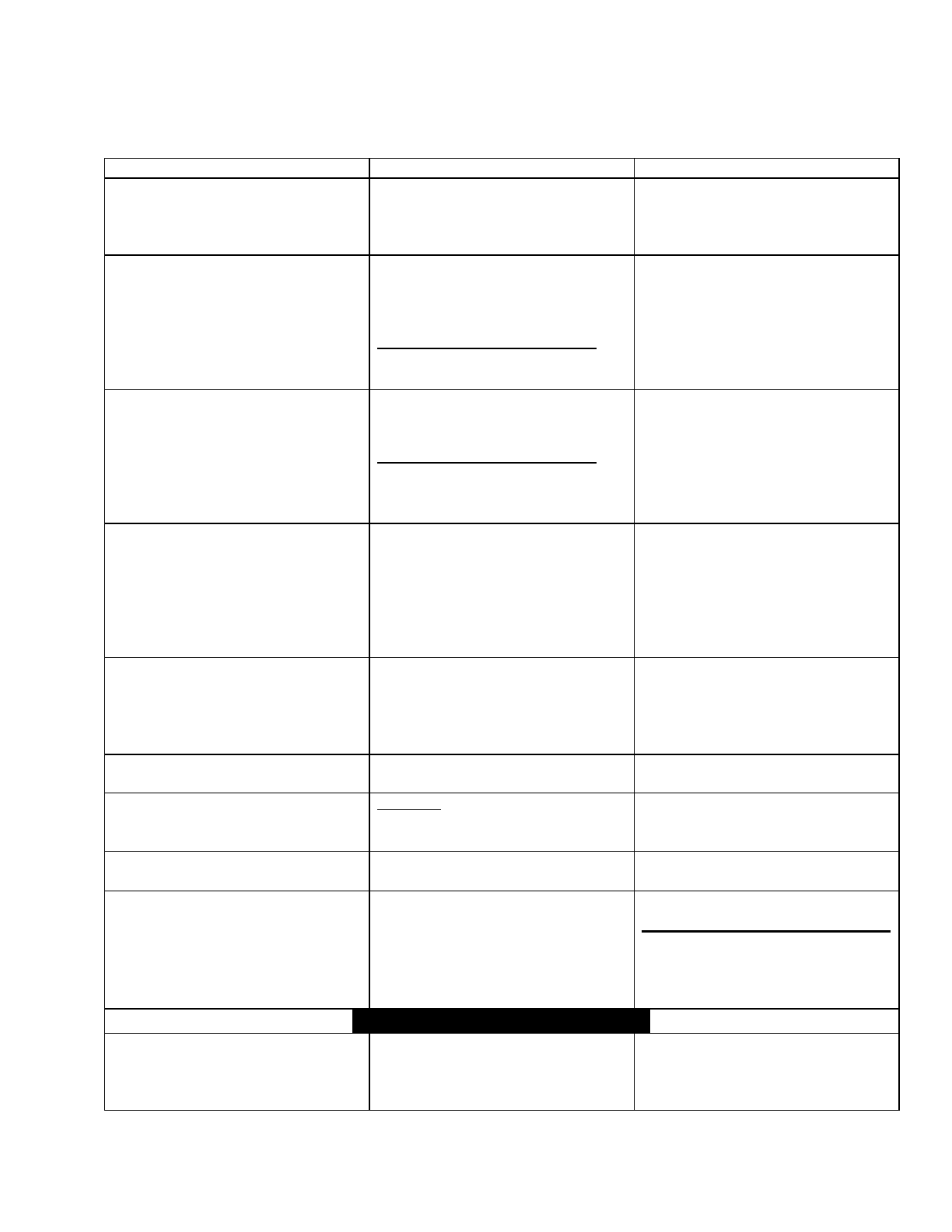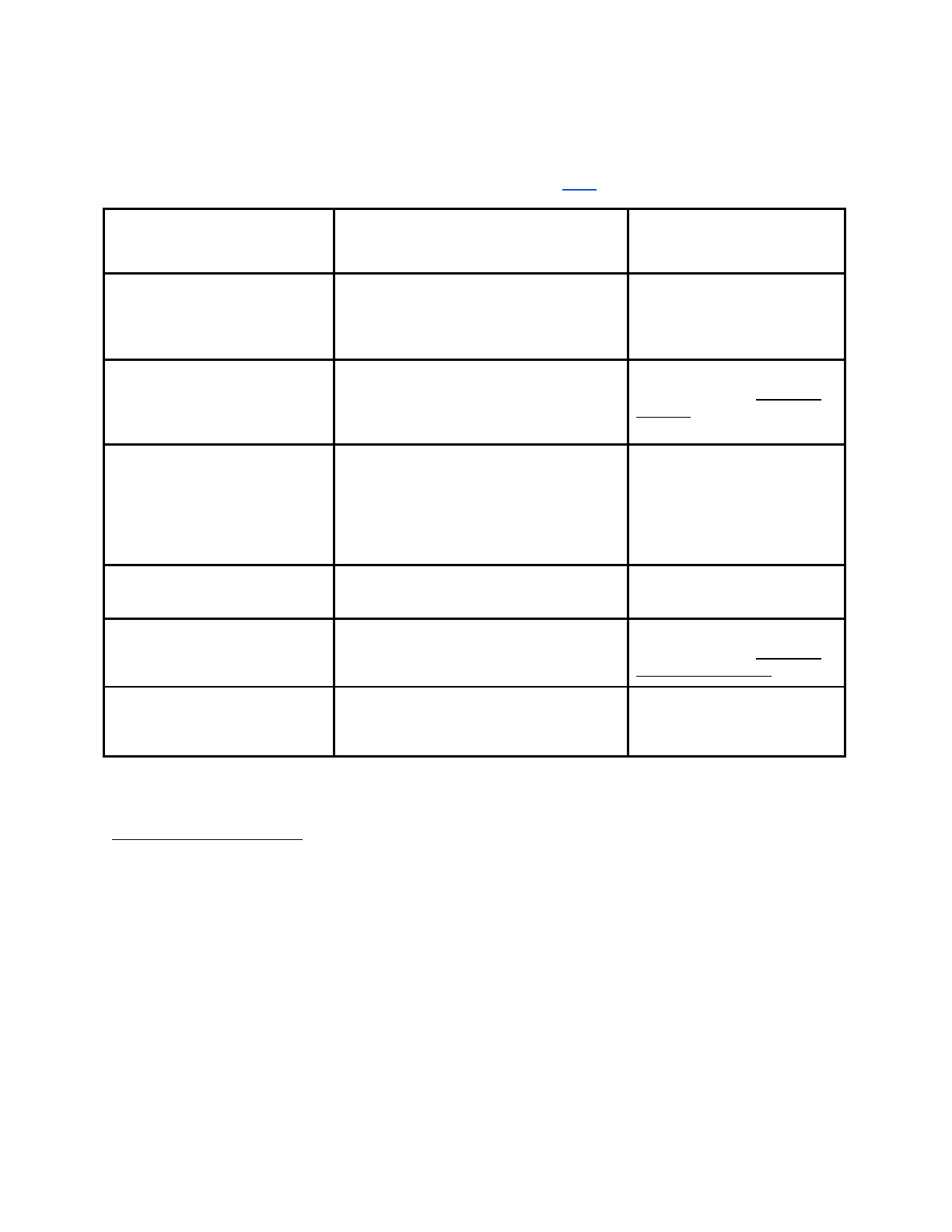
BEARDEN HIGH SCHOOL
ACADEMIC POLICIES AND
2021-22 COURSE DESCRIPTIONS
ADMINISTRATIVE TEAM
Debbie Sayers, Executive Principal
Russ Wise, Curriculum Principal
Candace Greer, Assistant Principal, Class of 2022
Donal Balcom, Athletic Director & Assistant Principal,
Class of 2023
Meshon Crateau, Assistant Principal, Class of 2024
Rod Crockett, Assistant Principal Class of 2025
SCHOOL COUNSELORS SY 2021-22
Susan Bolinger, Director of College Counseling
Brian Tanner, Class of 2022
Nicole Mullinax, Class of 2023
Kelly Nash, Class of 2024
Beverly Anderson, Class of 2025 & Dept Chair
Leslie Lee, Support Counselor for Grades 9 - 12
#BEARDEN STRONG
Support each other Teach kids Reach out Own your effort Never Settle Give grace
8352 Kingston Pike Knoxville, TN 37919 (865) 539-7800
www.knoxschools.org/beardenhs

INDEX
GRADUATION REQUIREMENTS
ACADEMIC & GRADING POLICIES
SCHEDULE AND COURSE LOAD
GRADING SCALE
CALCULATION OF THE STUDENT’S GRADE POINT AVERAGE (GPA)
REPEATING COURSES
TRANSFER GRADES FROM OUTSIDE KNOX COUNTY SCHOOLS
ADVANCED COURSE WEIGHTING
SENIOR CLASSIFICATION (determining of Val/Sal)
EARLY POSTSECONDARY OPPORTUNITIES (EPSOS)
COURSES WHICH MAY BE TAKEN FOR MULTIPLE CREDIT
COURSE DESCRIPTIONS
General Education Courses
ENGLISH
AP CAPSTONE PROGRAM
LANGUAGE ARTS ELECTIVES
FINE ARTS Art Music Theater
HUMAN SERVICES
MATHEMATICS
NJROTC
PHYSICAL EDUCATION
SCIENCE
SOCIAL STUDIES
SOCIAL STUDIES ELECTIVES
WORLD LANGUAGE
ADDITIONAL OFFERINGS
Career Technology Education (CTE) Courses
AUTOMOTIVE MAINTENANCE
BUSINESS / MARKETING
CODING / WEB DESIGN / CYBERSECURITY
ENGINEERING
HEALTH SCIENCE
HUMAN & SOCIAL SERVICES / EDUCATION

BEARDEN HIGH SCHOOL GRADUATION REQUIREMENTS
CONTENT AREAS
MINIMUM REQUIREMENTS
CREDITS TAKEN & EARNED
ENGLISH
4 credits
English 1, 2, 3, 4
ESL students may use ESL credits for
two 2 of the four required
_____ English 1
_____ English 2
_____ English 3
_____ English 4
MATHEMATICS
4 credits
● Four credits required.
● Students must take a math
course every year.
● Math courses must advance
each year.
Algebra 1
Geometry
Algebra 2
Math past Algebra 2
Students with qualifying IEP’s only:
Algebra 1A Geometry A
Algebra 1B Geometry B
_____ Algebra 1
_____ Geometry
_____ Algebra 2
_____ Math past Algebra 2
SCIENCE
3 credits (4 recommended)
Biology
Chemistry or Physics
3
rd
Lab Science
Students with qualifying IEP’s only:
Biology 1A (1 credit)
Biology 1B (1 credit)
3
rd
Lab Science
_____ Biology
_____ Chemistry or Physics
_____ 3
rd
Lab Science
SOCIAL STUDIES
3.5 credits
● 3 credits of JROTC may
substitute for US Govt and
Personal Finance.
● Marketing 1 or VE 1 may
substitute for Economics.
World History & Geography
or AP Human Geography
US Government (1/2 credit;
1 credit if AP US Government)
US History & Geography
Economics (1/2 credit)
Personal Finance (1/2 credit)
_____ Wld Hist & Geog or APHG
_____ US Government
_____ US History & Geography
_____ Economics
_____ Personal Finance
PHYSICAL EDUCATION
½ credit
May meet this requirement by:
● Taking a PE class
● Earning 2 credits of JROTC
● Participating in Marching Band, a
TSSAA sport, or a BHS Club Sport
_____ Physical Education
LIFETIME WELLNESS
1 credit
2 credits of JROTC will satisfy this
requirement
_____ Lifetime Wellness
FINE ART*
1 credit
Examples: Visual Art 1, Theatre Arts 1,
Band, Orchestra, Dev of Rock & Roll,
Chorus
_____ Fine Art
WORLD LANGUAGES*
2 credits (3 recommended)
Must be in the SAME world language
(e.g, French 1 & French 2)
_____ World Language I
_____ World Language II
ELECTIVE FOCUS
The Course Selection Sheet
(CSS) is organized by Elective
Focus Areas. Use the CSS as a
guide.
Three credits in the same
pathway/elective focus area.
Credits must be above and beyond
core graduation requirement (e.g.
Spanish 1, 2, and 3 – only Spanish 3
may count towards an Elective Focus)
List Your Elective Focus Area:
_____ Elective Focus Course 1
_____ Elective Focus Course 2
_____ Elective Focus Course 3
Total Number of Credits Required = 28
ADDITIONAL REQUIRED TESTS
Must take an ACT or SAT
Must take & pass a Civics Exam
(taken through US Govt,
US History or Economics)
_____ ACT or SAT
(taken at school in Spring of Junior year
and Fall of Senior year)
_____ Civics Exam

SCHEDULE AND COURSE LOAD
Bearden operates on a 4X4 block schedule system with students taking a total of eight (8) classes each year.
Students must take four (4) courses each semester. Each class is 90 minutes in length. Each semester covers a
year’s worth of curriculum. All students in grades 9 - 12 must carry a full course load of four (4) courses each
semester. Students wishing to take more than four (4) classes a semester and/or who wish to take courses outside
the school day--including summer courses--must seek prior approval from Principal Sayers. No student is permitted
to take less than four (4) courses each term.
GRADING POLICIES
GRADING SCALE
The KCS grading legend is aligned with the State Board of Education Tennessee Uniform Grading Scale.
CALCULATION OF THE STUDENT’S GRADE POINT AVERAGE (GPA)
All high school course work, with the exception of pass/fail courses, will be calculated in the GPA according to the
KCS scale. When a course is repeated, the higher of the grades shall be computed as part of the accumulated grade
point average. (BOE I-350)
NOTE: TN Lottery/Hope Scholarship
State law requires that students applying for lottery scholarships and other state scholarship funds be
evaluated utilizing the State’s uniform grading scale (KCS Unweighted GPA). A transcript with grade
calculations based on the Uniform Grading Policy will be submitted to TSAC for Lottery/Hope Scholarship
eligibility.
REPEATING COURSES
In accordance with KCS Policy I-350, students may repeat courses on a space-available basis under provisions set
forth in this policy. Courses previously failed may be repeated in summer school or during the regular school year.
Students may not repeat a passed course if they have received a passing grade in the next sequential course (e.g.,
you may not repeat Spanish II if you have already passed Spanish I).
When a course is repeated, the higher of the grades shall be computed in the GPA and all course attempts will
remain on transcripts as part of the cumulative record.
Beginning Spring, 2021 and in accordance with the KCS Policy I-351, if a course is taken for Credit Recovery (via
Edgenuity) for a previously failed course with a grade of 51 - 69, the highest grade posted on a transcript will be a
grade of 70/D.
TRANSFER GRADES FROM OUTSIDE KNOX COUNTY SCHOOLS
KCS will honor grading scales from sending institutions. The KCS transcript will reflect courses and grades earned at
the previous institution. The weighted grade from another high school will be used in calculating the GPA as long as
Knox County Schools offered the equivalent course and weight for the same academic year.
A = 100 - 93
B = 92 - 85
C = 84 - 75
D = 74 - 70
F = 69 - 00

WEIGHTING GRADES FOR ADVANCED HIGH SCHOOL COURSEWORK
High school weighting for advanced courses offered at Bearden is indicated by the chart below. Points are added at
the completion of the exam. This is in accordance with KCS Board Policy I-341.
SENIOR CLASSIFICATION (determining of Val/Sal)
Valedictorian and Salutatorian:
The Valedictorian and Salutatorian shall have earned the highest and next highest grade-point averages using Knox
County Schools equalization formula. This formula prevents any student from either gaining an advantage or being
penalized for the number of high school courses completed. This formula prorates the regular courses in such a way
that the number of credits completed is equivalent for all students competing for the Valedictorian and Salutatorian
positions. This formula considers all course weighting and bonus points for Advanced Placement (AP), International
Baccalaureate (IB), Dual Enrollment, Statewide Dual Credit, National Industry Certification and Honors courses in its
calculation. All grades included on the high school transcript shall be used in this calculation.
To become Valedictorian or Salutatorian, a student must be enrolled in a Knox County school at the beginning of the
tenth (10th) grade year and attend through the twelfth (12th) grade. If there is a tie through the hundredth (100th)
of a point for a valedictorian, all students qualifying shall be named. Senior classification beyond the positions of
Valedictorian or Salutatorian will be reported in deciles, such an “upper ten percent.” Identification of Valedictorian,
Salutatorian, and the top ten percent shall be calculated using the grades from the seventh semester.
ADVANCED COURSE LEVEL
DESIGNATION
ADDITIONAL GPA QUALITY POINT
GUIDE
PERCENTAGE POINTS
ADDED TO FINAL GRADE
HONORS*
Additional .5 quality point used for GPA
calculation
Three (3) points added to
student’s Final Grade in
accordance with school board
policy
ADVANCED PLACEMENT
Additional 1 quality point used for GPA
calculation
Five (5) points added to Final
Grade for students who sit for
AP Exam in accordance with
school board policy
INDUSTRY CERTIFICATION
Additional 1 quality point used for GPA
calculation
Four (4) points added to Final
Grade for students who sit for
the identified Industry
Certification Exam in
accordance with school board
policy
DUAL ENROLLMENT
Additional 1 quality point used for GPA
calculation
Four (4) points added to Final
Grade (
new as of 11/20
)
STATEWIDE DUAL CREDIT
Additional 1 quality point used for GPA
calculation
Four (4) points added to Final
Grade for students who sit for
State Challenge Exam
College Level Examination
Program (CLEP)
No additional quality points used for GPA
calculation
Five (5) points added to the
Final Grade for students who sit
for the identified CLEP Exam

EARLY POSTSECONDARY OPPORTUNITIES (EPSOS)
EPSOs provide students the opportunity to earn postsecondary credits while still in high school. Opportunities are
available through taking the following courses:
ADVANCED PLACEMENT - AP courses are taught by Bearden teachers. Bearden offers 26 AP courses in English,
math, science, social studies, world languages and the fine arts. College credit is generally awarded to students who
score a 3 or higher on the AP exam. Credit-awarding practices vary from college to college. Universities generally
view AP courses as the highest level of rigor available for a student to take while in high school. There is no cost to
take an AP course; however, AP exams are around $95 each. Exam cost assistance is available.
DUAL ENROLLMENT - Through our partner institutions of PSTCC, LMU and Tusculum, Juniors & Seniors may take a
variety of courses. All DE courses are taught by college faculty, are off campus and most courses (in SY 20-21) are
online. Students must have a minimum 3.0 unweighted GPA and a 19 ACT composite and subscore for most
courses. Students planning to take DE courses must complete the application process through Bearden’s College &
Career Center the spring prior to the school year wishing to enroll in a DE course. The state of Tennessee offers a
DE Grant which may cover most of the course cost; the grant does not cover book costs or other expenses.
DUAL CREDIT - Dual Credit courses are taught by Bearden teachers. Bearden currently offers State Dual Credit for
Statistics and Psychology. Students who pass a challenge exam are eligible to earn college credit for Math 1530
(Probability & Statistics) and Psychology 1030 at all Tennessee public colleges. Bearden offers local dual credit (up
to 6 hours) with PSTCC for students who take Advanced Computer Applications at Bearden and who pass the
Microsoft Office Word & Excel certifications at the expert level. There is not cost for the State or Local DC courses or
the challenge exams.
INDUSTRY CERTIFICATIONS - Bearden offers a variety of opportunities to earn Industry Certification through
coursework and industry examinations in some of our Career Technical Education (CTE) courses. Many such courses
are in the areas of Health Science, Maintenance Light & Repair (Auto Mechanics) and Business & Technology.
COURSES WHICH MAY BE TAKEN FOR UNLIMITED CREDIT
Students who qualify for the following elective courses may be permitted to re-enroll every semester on a space
available basis with priority given to first time enrollees. Please see course descriptions for prerequisites (auditions,
applications, etc.):
ADVANCED ART
ADVANCED
THEATRE
ADVANCED
JOURNALISM
(Yearbook Or
Newspaper)
JROTC
PEER TUTORING
WBL
(Work-Based
Learning)
ENGLISH SECOND
LANGUAGE
(Until dismissed by
teacher)
ANY ADVANCED
PHYSICAL EDUCATION
(The suggested
maximum is two of the
same)
PERFORMING
CHORAL MUSIC
GROUPS
PERFORMING ARTS
AND INSTRUMENTAL
GROUPS

COURSE DESCRIPTIONS
GENERAL EDUCATION COURSES
ENGLISH
NOTE: To satisfy graduation requirements, each student must complete four courses of Language Arts: English I,
English II, English III, and English IV. Each of these core courses addresses eight curriculum content strands:
Language, Communication, Writing, Research, Logic, Informational Text, Media, and Literature. All courses required
for graduation have an outside reading list. Honors & AP English courses have required summer reading.
COURSE TITLE: ENGLISH 1 CREDIT: 1
THIS COURSE MEETS THE 9
TH
GRADE ENGLISH REQUIREMENT GRADE: 9
In English 1, students will build upon the skills developed in the middle school English Language Arts. The focus is on
close reading of informational and literary texts of appropriate grade level complexity. Based upon their reading, the
students will engage in class discussion and written assignments to present analysis to develop an argument, or to
write real or imagined narrative. While reading and writing, students will analyze the author’s point of view, evidence,
assumptions, and style. Within their own writing, students will develop focus, organization, style, and grammatical
fluency. Vocabulary study will focus on morphology, etymology, and context, and the words will come from the texts
that the students read. Assessment will focus on the students’ ability to read appropriately complex text and to cite
evidence to support analysis or claims from that text. Language skills will be assessed in the context of their writing,
as well as through authentic workplace tasks, such as editing a draft. Honors curriculum modules reflect the
Tennessee Department of Education framework for extension.
COURSE TITLE: HONORS ENGLISH I CREDIT: 1
PREREQUISITE: TEACHER RECOMMENDATION GRADE: 9
THIS COURSE MEETS THE 9
TH
GRADE ENGLISH REQUIREMENT
In English 1, students will build upon the skills developed in the middle school English Language Arts. The focus is on
close reading of informational and literary texts of appropriate grade level complexity. Based upon their reading, the
students will engage in class discussion and written assignments to present analysis to develop an argument, or to
write real or imagined narrative. While reading and writing, students will analyze the author’s point of view, evidence,
assumptions, and style. Within their own writing, students will develop focus, organization, style, and grammatical
fluency. Vocabulary study will focus on morphology, etymology, and context, and the words will come from the texts
that the students read. Assessment will focus on the students’ ability to read appropriately complex text and to cite
evidence to support analysis or claims from that text. Language skills will be assessed in the context of their writing,
as well as through authentic workplace tasks, such as editing a draft. Honors curriculum modules reflect the
Tennessee Department of Education framework for extension.
COURSE TITLE: ENGLISH II CP CREDIT: 1
PREREQUISITE: THIS COURSE MEETS THE 10
TH
GRADE ENGLISH REQUIREMENT GRADE: 10
In English 2, students build upon the skills developed in English 1. The focus is on the close reading of informational
and literary texts of appropriate grade level complexity. Based upon their reading, the students engage in class
discussion and written assignments to present analysis to develop an argument, or to write a real or imagined
narrative. While reading and writing, students analyze the author’s point of view, evidence, assumptions, and style.
Within their own writing, students will develop focus, organization, style, and grammatical fluency. Vocabulary study
focuses on morphology, etymology, and context, and the words come from the texts students read. Assessment will
focus on the students’ ability to read appropriately complex text and to cite evidence to support analysis or claims
from that text. Language skills are assessed in the context of their writing, as well as through authentic workplace
tasks, such as editing a draft.
COURSE TITLE: HONORS ENGLISH II CREDIT: 1
PREREQUISITE: TEACHER RECOMMENDATION
THIS COURSE MEETS THE 10
TH
GRADE ENGLISH REQUIREMENT GRADE: 10
In English 2, students build upon the skills developed in English 1. The focus is on the close reading of informational
and literary texts of appropriate grade level complexity. Based upon their reading, the students engage in class

discussion and written assignments to present analysis to develop an argument, or to write a real or imagined
narrative. While reading and writing, students analyze the author’s point of view, evidence, assumptions, and style.
Within their own writing, students will develop focus, organization, style, and grammatical fluency. Vocabulary study
focuses on morphology, etymology, and context, and the words come from the texts students read. Assessment will
focus on the students’ ability to read appropriately complex text and to cite evidence to support analysis or claims
from that text. Language skills are assessed in the context of their writing, as well as through authentic workplace
tasks, such as editing a draft.
COURSE TITLE: ENGLISH III CP CREDIT: 1
PREREQUISITE: TEACHER RECOMMENDATION
THIS COURSE MEETS THE 11
TH
GRADE ENGLISH REQUIREMENT GRADE: 11
Students in English 3 work on college and career-ready reading and writing skills while also reading and analyzing
foundational works in American literature. Through analyzing how multiple authors present similar subjects, students
learn about varying perspectives, bias, and audience. They also become proficient at identifying and evaluation
reasoning within documents of historical, literary, information, and legal natures. Throughout the course, they will
conduct short and long-term research projects, following both their lines of inquiry and some teacher-directed lines
of inquiry. While the foundational skills for composition should be established in the earlier grades, students in
English 3 work to refine their writing style in fluency and sophistication.
COURSE TITLE: TECHNICAL WRITING (WRITING FOR COLLEGE) CREDIT: 1
PREREQUISITE: PAIRED WITH ENGLISH III CP GRADE: 11
This course was designed to focus on the specifics of professional research and communication. Students will blend
their discipline-specific knowledge on career-focused classes with business and technical communication skills.
Becoming fluent in writing, reading and researching for the professional community requires specific focus and
attention to the culture and expectations. Typed of texts students will read and produce include white papers,
research briefs, literature reviews, grants, and proposals. Students will also engage in defending a research brief and
pitching a proposal. Assessment will be through assignments and a portfolio review with reflection. This course is
designed for 11th grade students
COURSE TITLE: AP ENGLISH LANGUAGE AND COMPOSITION CREDIT: 1
PREREQUISITE: TEACHER RECOMMENDATION GRADE: 12
THIS COURSE MEETS THE 12
TH
GRADE ENGLISH REQUIREMENT
Advanced Placement English IV is a course for students who have successfully completed AP LIT or have
demonstrated excellence in composition and rhetorical skills. The curriculum emphasizes analysis, research, and
composition as students become skilled readers of prose written in a variety of periods, disciplines, and rhetorical
contexts. Students will be expected to think critically and analytically and be able to express themselves effectively.
Outside readings are required. The course is designed to help develop the cognitive and communicative skills
necessary to do well on the AP English Language and Composition Test.
COURSE TITLE: ENGLISH IV CREDIT: 1
PREREQUISITE: TEACHER RECOMMENDATION
THIS COURSE MEETS THE 12
TH
GRADE ENGLISH REQUIREMENT
Students in English 4 work on college and career-ready reading and writing skills while also reading and analyzing
foundational works in world literature. Through analyzing how multiple authors present similar subjects, students
learn about varying perspectives, bias, and audience. They also become proficient at identifying and evaluation
reasoning within documents of historical, literary, information, and legal natures. Throughout the course, they will
conduct short and long-term research projects, following both their lines of inquiry and some teacher-directed lines
of inquiry. While the foundational skills for composition should be established in the earlier grades, students in
English 4 work to refine their writing style in fluency and sophistication as well as develop their speaking and
listening skills through speeches and presentations.
COURSE TITLE: AP ENGLISH LITERATURE AND COMPOSITION CREDIT: 1
PREREQUISITE: TEACHER RECOMMENDATION GRADE: 11
THIS COURSE MEETS THE 11
th
GRADE ENGLISH REQUIREMENT
A course for students who have successfully completed Advanced Placement English 3 or demonstrated competency
in composition and literary analysis skills. Students must be highly motivated and have above average writing and
analytical skills. The curriculum is an in-depth study of American, British, and World literature with expectations
commensurate with the first year of college English. Outside readings are required. The course is designed to help

develop the cognitive and communicative skills necessary to do well on the AP English Literature and Composition
Test.
ADVANCED PLACEMENT (AP) CAPSTONE
The AP Capstone designation is built on the foundation of two courses AP Seminar and AP Research. Successful
completion of both courses can replace the English 4 requirement.
ADVANCED PLACEMENT (AP) SEMINAR:
THIS COURSE IS PART OF THE AP CAPSTONE PROGRAM. AP SEMINAR IS A YEARLONG COURSE PAIRED WITH AP
LANGUAGE IN A STUDENT’S JUNIOR YEAR.
AP Seminar involves intensive research and synthesis of self-selected topics. Students engage in research to analyze
real-world problems and to cultivate the skills needed for successful college writing. Teams of students work to
analyze and synthesize their findings and present their research to the class. The students explore scientific,
economic, and political topics from a variety of viewpoints and broaden their understanding of global issues.
ADVANCED PLACEMENT (AP) RESEARCH:
THIS COURSE IS PART OF THE AP CAPSTONE PROGRAM AND IS PAIRED WITH HONORS ACADEMIC RESEARCH IN
THE STUDENT’S SENIOR YEAR. In AP Research, students further the skills they obtained in the AP Seminar course
and develop a research methodology while employing ethical research practices. Students work on a year-long
research project, document their processes, and curate artifacts as they develop a scholarly work portfolio. The final
project is an academic paper of 4000–5000 words (accompanied by a performance or exhibition of product where
applicable) and a presentation of their findings with an oral defense. This course can only be taken during the
student’s final year of high school.
COURSE TITLE: ENGLISH SECOND LANGUAGE/ENGLISH LANGUAGE LEARNER CREDIT:
PREREQUISITE: LANGUAGE TESTING GRADES: 9, 10, 11, 12
ESL is an English course designed for students whose first language or primary language is other than English. Based
on level of English proficiency as determined by a standardized, state-approved ESL Test, students are provided
English instruction specifically designed for second language learners. Students may substitute ESL/ELL for up to two
units of English credit. Additional credit earned in ESL/ELL may be used as elective credit.
LANGUAGE ARTS ELECTIVES
COURSE TITLE: BOOKS OF BROADWAY CREDIT: 1
PREREQUISITE: NONE GRADES: 9, 10, 11, 12
Love musicals? This course is designed to explore the books of musicals. Musicals may have great musical scores,
beautiful sets, gorgeous costumes, amazing choreography, but their foundation and reason they have staying power
is their story – The Book. This class will examine what makes musicals unforgettable, moving, and in some cases life
changing.
COURSE TITLE: CREATIVE WRITING I CREDIT: 1
PREREQUISITE: NONE GRADES: 9, 10
Students will be given the opportunity to develop a creative outlet through additional writing experiences in fiction
and nonfiction. Creative writing allows students to promote self-expression, to explore various writing styles, and to
strive for variety in diction, sentence structure, and format. (Elective credit)
COURSE TITLE: ADVANCED CREATIVE WRITING CREDIT: 1
PREREQUISITE: CREATIVE WRITING I or TEACHER APPROVAL
Students will continue to pursue the art of creative writing, concentrating especially on poetry, short stories,
non-fiction, and screenwriting. Works of great authors are examined and modeled, with a view to enhancing the
students’ own work. The class is conducted as a workshop with both teacher- and peer-conferencing, an important
part of the process, the end result being a significant portfolio of student work. (Elective credit)
COURSE TITLE: HISTORICAL FICTION CREDIT: 1
PREREQUISITE: NONE GRADES: 9, 10, 11, 12
History lovers will enjoy this contemporary fiction class! This course is designed to operate in a book-club fashion
with class discussion, historical research, TED talks, and reflective, collaborative visual projects. Choice reads and
group work allow participants to study a historical time period that they enjoy or to discover a new one. Reading
time, research and reflections are completed during class.

COURSE TITLE: INTRODUCTION TO ETHICS CREDIT:1
PREREQUISITE: NONE GRADES: 11, 12
Philosophy & Literature, a semester course open to juniors and seniors, is an introduction to philosophical reflection
and examination of some central questions of human existence, the nature of truth and knowledge, and ethical
questions concerning morality and the good life. Students who are interested in contemporary issues and an
examination of how ancient and modern philosophy and ethics play a part in human reasoning will enjoy the
discussions, in-class projects, and “choice” readings that are a part of this reflective course. Original texts,
philosophical films, and brief video lectures are also used.
COURSE TITLE: JOURNALISM I CREDIT: 1
PREREQUISITE: NONE GRADES: 9, 10, 11, 12
Students will have the opportunity to improve the skills necessary in journalistic writing for both print and broadcast
media. Curriculum includes the history and elements of journalistic style and the application of journalistic
techniques to the development of a publication. Students who wish to take this course must be highly motivated,
work well with peers, and be responsible in following through with assignments as the work culminates in a
publication. (Elective credit.)
COURSE TITLE: ADVANCED JOURNALISM (YEARBOOK / NEWSPAPER) CREDIT: 1
PREREQUISITE: APPLICATION GRADES: 10, 11, 12
A continuation and application of the journalistic skills covered in Journalism I. (Prerequisites: Successful completion
of Journalism I. Students will have to demonstrate ability to write well; students are required to apply for this course;
students may be required to receive teacher recommendation.) Publications include the electronic media and
journalism yearbook. (Elective credit: may not count as English credit.)
COURSE TITLE: MEDIEVAL LITERATURE (MEDIEVAL STUDIES) CREDIT:1
PREREQUISITE: NONE GRADES: 9, 10, 11, 12
Medieval Studies is a semester elective designed for students who are interested in the people, places, and events
that shaped Europe from 310 C.E. to 1400 C.E. Students will investigate topics, themes, & trends both historically &
through reading selections, typically 2-3 (short) per week. Specific topics will include The Saxons & the Franks,
Vikings & Islam,The Evolution of Feudalism, Chivalry, & the Church, Byzantium, Al-Andalus, The Normans, & The
Crusades. Although the class is open to Freshman, successful students will read at a 10th grade level (or above).
COURSE TITLE: MYTHOLOGY (GREEK & ROMAN) CREDIT: 1
PREREQUISITE: NONE GRADES: 10, 11, 12
This course will focus on the origins and development of Greco-Roman mythology. In-class lectures will be
accompanied by (short) literary selections which will detail different aspects of Myth. Specific units will focus on the
Olympians, tales of love and adventure, The 4 great heroes of Greek Mythology, the development of drama & wrath
in Greek Mythology, and the epics.
COURSE TITLE: SCIENCE FICTION CREDIT:1
PREREQUISITE: NONE GRADES: 9, 10, 11, 12
An elective course for students who have an interest in the genre of science fiction. The course includes units that
represent prevalent themes in science fiction: Man and Science, Man in Progression, Alien Encounters, and Visions of
the Future. The curriculum includes projects, reading, vocabulary development, discussion, composition and oral
presentations. (Elective credit: may not count as English credit.)
COURSE TITLE: SPEECH CREDIT: 1
PREREQUISITE: NONE GRADES: 9, 10, 11, 12
A one-unit course for students who wish to develop skills in public speaking. The curriculum includes skills in
researching, writing, presenting, and adapting speeches to various audiences and purposes. Forensics and debate
may be included.

FINE ARTS
ART
COURSE TITLE: VISUAL ART 1 CREDIT: 1
PREREQUISITE: NONE
A one-unit survey course designed for students in grades 9-12 who are enrolling in a high school art course for the
first time. Provides a variety of experiences that build on the concepts, techniques, and use of media introduced in
the middle school program. Generally laboratory in nature, Art I explores and gives experience in two-dimensional
(drawing, painting, printmaking) and three-dimensional (sculpture, ceramics, textiles) formats and integrates art
history, design principles, and aesthetic criticism and response. This course is a prerequisite for all other
advanced art coursework.
ADVANCED ART COURSES
All advanced art courses may be taken repeatedly for credit. Advanced art courses are studio classes designed for
serious students who have completed one term of Art I and who, in the judgment of the instructor, show sufficient
level of interest and/or ability that would warrant continued study in Visual Arts. The student will concentrate on
media specific studio experiences (refer to the list below). A strong emphasis will be placed on the development of
the student’s technical and conceptual skills in addition to continued study of aesthetics, critical analysis, and art
history.
Note: All Advanced Art courses will not be offered every semester.
GENERAL DESCRIPTION OF ADVANCED PLACEMENT ART PORTFOLIOS:
The AP Studio Art portfolios are designed for students who are seriously interested in the practical experience of art.
AP Studio Art is not based on a written examination; instead, students submit portfolios
for evaluation at the end of the school year.
COURSE TITLE: ADVANCED ART GENERAL 3D CREDIT: 1
PREREQUISITE: ART I AND TEACHER RECOMMENDATION GRADES: 11, 12
For students who have successfully completed Art I and, who, in the judgment of the instructor, show a sufficient
level of interest and/or ability that would warrant continued study in Visual Art. Based on approved curriculum
guides, the program of study may be divided into the following topics or areas of concentration: Art History,
Sculpture, Painting, Ceramics, Drawing, Printmaking, Paper, or Photo. General Advanced Art will study a combination
of two-dimensional and three-dimensional media. This assures that students who continue beyond the first year will
grow in their artistic development. Students may continue in Advanced Art on a space-available basis and may repeat
Advanced Art up to seven times at the determination of the instructor. (Prerequisite: Art I and teacher
recommendation.)
COURSE TITLE: HONORS ART CREDIT: 1
PREREQUISITE: ART I, ADVANCED ART CLASS, TEACHER REC via APPLICATION GRADES: 11, 12
A rigorous advanced art class that enables highly motivated students to complete studio art in various media. This
class is necessary to help prepare for the Advanced Placement Studio breadth component. Students must apply for
Honors-AP Art courses.
COURSE TITLE: AP ART & DESIGN DRAWING CREDIT: 1
PREREQUISITE: ART I AND TEACHER RECOMMENDATION via APPLICATION GRADES: 11, 12
The Advanced Placement Drawing Portfolio is designed to include a very broad interpretation of drawing issues. Many
types of painting, printmaking, studies for sculpture, and some forms of design, as well as abstract and observational
works, could qualify as addressing drawing issues. The range of marks used to make drawings, the arrangement of
those marks, and the materials used to make the marks are endless. Works of photography, videotapes and
computer-generated works may not be submitted for the drawing portfolio.
COURSE TITLE: AP ART & DESIGN 2D CREDIT: 1
PREREQUISITE: ART I AND TEACHER RECOMMENDATION via APPLICATION GRADES: 11, 12
This portfolio is intended to address a very broad interpretation of two-dimensional (2D) design issues. This type of
design involves purposeful decision-making about how to use the elements and principles of art in an integrative
way. For this portfolio, students are asked to demonstrate proficiency in 2D design using a variety of art forms.

These could include, but are not limited to, graphic design, typography, digital imaging, photography, collage, fabric
design, weaving, illustration, painting, printmaking, etc. A variety of approaches to representation, abstraction, and
expression may be part of the student’s portfolio.
COURSE TITLE: AP ART & DESIGN 3D CREDIT: 1
PREREQUISITE: ART I AND TEACHER RECOMMENDATION via APPLICATION GRADES: 11, 12
This portfolio is intended to address a broad interpretation of sculptural issues in depth and space. These may
include mass, volume, form, plane, light, and texture. Such elements and concepts may be articulated through
additive, subtractive, and/ or fabrication processes. A variety of approaches to representation, abstraction, and
expression may be part of the student’s portfolio. These might include traditional sculpture, architectural models,
apparel, ceramics, three-dimensional fiber arts or metal work, among others.
COURSE TITLE: ADVANCED ART PHOTOGRAPHY CREDIT: 1
PREREQUISITE: ART I, ADVANCED ART GENERAL GRADES: 11, 12
35 mm SLR CAMERA
Photography is a lab course which explores 35 mm SLR and digital photography. Students use black and white film
and paper. Students learn basic camera operations, darkroom processing, and the basics of manual photography.
Students need to have a 35 mm SLR camera. Students shall purchase their own film and paper. The course may be
repeated to explore advanced B/W and digital techniques, with a 35 mm digital camera.
MUSIC
COURSE TITLE: VOCAL MUSIC I (MALE & FEMALE CHORUS) CREDIT: 1
PREREQUISITE: NONE GRADES: 9-10
Concert Chois is a non-auditioned chorus for beginning choral students who wish to study and perform a wide variety
of sacred and secular choral literature of easy to medium difficulty in a variety of styles. Emphasis is placed on vocal
production and basic choral techniques, intonation, phrasing, sight-reading and ear training, general musicianship
skills, understanding and attitudes and the responsibility of individuals to the group. There are no prerequisites,
although some basic minimum requirements may be recommended by the teacher. Performances and after-school
rehearsals are required. Can be taken for multiple credits and serves as a prerequisite for both Bearden Singers,
Bearden Brothers and Bearden Belles.
COURSE TITLE: BEARDEN BELLES FALL and SPRING CREDIT: 2 (1 per Semester)
PREREQUISITE: AUDITION, PREVIOUS CHORAL EXPERIENCE
GRADES: 9-12 (Preference given to 10-12)
Bearden Belles is an auditioned advanced chorus consisting of young women who wish to study and perform a wide
variety of medium to difficult sacred and secular choral literature in a variety of styles and historical periods. In this
course, students will build their skills in singing/vocal technique, reading music, and perform advanced SSAA choral
repertoire. Emphasis will be placed on an advanced degree of musicianship and increased performance skills
individually and in an ensemble. Bearden Belles is for students who elect and are selected by audition to be in the
group. Students in this course will represent Bearden High School Choir by performing in concerts, festival
competitions, and other community events. Performances and after-school rehearsals are required. Can be taken for
multiple credits. In order to be considered for Bearden Acapella Ensembles, students must enroll in both semesters of
either Bearden Singers or Bearden Belles.
COURSE TITLE: BEARDEN SINGERS FALL and SPRING CREDIT: 2 (1 per Semester)
PREREQUISITE: AUDITION, PREVIOUS CHORAL EXPERIENCE GRADES: 9-12 (Preference given to 10-12)
Bearden Singers is an auditioned advanced chorus consisting of students who wish to study and perform a wide
variety of medium to difficult sacred and secular choral literature in a variety of styles and historical periods. In this
course, students will build their skills in singing/vocal technique, reading music, and perform advanced SATB or
SSAATTBB choral repertoire. Emphasis will be placed on an advanced degree of musicianship and increased
performance skills individually and in ensemble. Bearden Singers is for students who elect and are selected by
audition to be in the group. Students in this course will represent Bearden High School Choir by performing in
concerts, festival competitions, BHS graduation, and other community events. Performances and after-school
rehearsals are required. Can be taken for multiple credits. In order to be considered for Bearden Acapella Ensembles,
students must enroll in both semesters of either Bearden Singers or Bearden Belles.

COURSE TITLE: DEVELOPMENT OF ROCK AND ROLL CREDIT: 1
PREREQUISITE: NONE GRADES: 10-12
This course is designed as a survey of rock and roll music, from its very roots to the music today. Students will
develop knowledge and understanding of the musical elements of rock and roll and the major artists within each
period. Students will identify the different styles that make up each period and study the social and cultural
connections in the creation of rock and roll. Class participation, attendance, maintaining a journal, and completion of
all assignments is required. Maximum credit one unit.
COURSE TITLE: FRESHMAN ORCHESTRA CREDIT: 1
PREREQUISITE: TEACHER APPROVAL GRADES: 9
This course is designed to give students the opportunity to learn to play one of the following string instruments:
Violin, Viola, Cello or Bass. Students will be exposed to the four (4) string instruments listed above and through
teacher guidance will be allowed to learn the instrument of their choice or the instrument for which the student is
best suited. Students will learn the basic elements of music as well as the proper way to play their musical
instrument.
COURSE TITLE: ORCHESTRA CREDIT: 1
PREREQUISITE: PREVIOUS EXPERIENCE AND TRAINING GRADES: 9, 10, 11, 12
Provides students with the opportunity of continuing the study and performance of music emphasizing styles from
several historical periods. The course focuses on the study of the elements of music and the development of
performance skills for individuals and ensembles. Individual practice, after-school practice and rehearsal sessions,
and performances are required. Performance opportunities include string orchestra, full orchestra, invitational and
audition clinics, festivals, and contests. (Prerequisites: Previous experience and teacher approval) Can be taken for
multiple credits.
COURSE TITLE: MARCHING BAND (WOODWINDS) CREDIT: 1
PREREQUISITE: PREVIOUS EXPERIENCE GRADES: 9, 10, 11, 12
Performance skills and techniques are emphasized. Band focuses on the study of the elements of music and the
development of advanced individual and group performance skills. Individual practice, after-school practice and
rehearsal sessions, weekend contests, and performances are required.
COURSE TITLE: MARCHING BAND (BRASS/PERCUSS) CREDIT: 1
PREREQUISITE: PREVIOUS EXPERIENCE GRADES: 9, 10, 11, 12
Performance skills and techniques are emphasized. Band focuses on the study of the elements of music and the
development of advanced individual and group performance skills. Individual practice, after-school practice and
rehearsal sessions, weekend contests, and performances are required.
COURSE TITLE: CONCERT BAND CREDIT: 1
PREREQUISITE: PREVIOUS EXPERIENCE GRADES: 9, 10, 11, 12
The Concert Band, Symphonic Band, and Wind Ensemble are musical groups concentrating their skills on musical
performances for advanced woodwinds, brass, and percussion performance. These bands play a variety of styles and
types of music selected from the standard high school band repertoire. The goal of these courses is to develop a
proficiency on a chosen instrument through rehearsals, lessons and various performances. These bands will have
several performance opportunities throughout the semester. Through these classes the students will improve
instrumental skills, elevate performance skills as well as develop an understanding of the performance process. All
National Music Standards are addressed and the highest expectations of musicianship and behavior are expected.
Rehearsals and performances during the school day, before and after the regular school day, as well as on
non-school days, may be required. (Prerequisite: Previous study of a band instrument and Music Instructor’s
signature) Can be taken for multiple credits.
COURSE TITLE: SYMPHONIC BAND CREDIT: 1
PREREQUISITE: PREVIOUS EXPERIENCE GRADES: 9, 10, 11, 12
The Concert Band, Symphonic Band, and Wind Ensemble are musical groups concentrating their skills on musical
performances for advanced woodwinds, brass, and percussion performance. These bands play a variety of styles and
types of music selected from the standard high school band repertoire. The goal of these courses is to develop a
proficiency on a chosen instrument through rehearsals, lessons and various performances. These bands will have
several performance opportunities throughout the semester. Through these classes the students will improve
instrumental skills, elevate performance skills as well as develop an understanding of the performance process. All
National Music Standards are addressed and the highest expectations of musicianship and behavior are expected.

Rehearsals and performances during the school day, before and after the regular school day, as well as on
non-school days, may be required. (Prerequisite: Previous study of a band instrument and Music Instructor’s
signature) Can be taken for multiple credits.
COURSE TITLE: HONORS BAND AND HONORS ORCHESTRA COURSES CREDIT: 1
PREREQUISITE: PREVIOUS BAND, ORCHESTRA, OR CHORUS EXPERIENCE, APPLICATION, AND TEACHER APPROVAL
Honors courses are offered in both instrumental and vocal music. Students that enroll in an honors course will be
required to complete all of the requirements for their chosen area of study (band, orchestra or chorus) as well as the
honors course requirements listed in the Knox County Schools Honors Course Credit Contract for instrumental and
vocal music. Honors courses require a yearlong commitment. Students must be enrolled in the course for both the
fall and spring semesters and must complete all of the requirements above before honors credit will be given for the
course.
THEATRE
COURSE TITLE: THEATRE ARTS I CREDIT: 1
PREREQUISITE: NONE GRADES: 9, 10, 11, 12
A one-unit course for students who have an interest in drama and wish to learn the history of theatre and improve
their abilities in communicating and appearing before a group. The curriculum includes exercises in pantomime,
improvisation, basic stage direction, play reading, theatre history, stagecraft, basic acting skills, and oral
interpretation. (Elective credit)
COURSE TITLE: THEATER ARTS 2 CREDIT: 1
PREREQUISITE: THEATRE ARTS I AND AUDITION GRADES: 10, 11, 12
For students who have completed Theatre Arts I and who wish to expand their interpretative skills and knowledge of
theatre. The curriculum includes further study of oral and dramatic interpretation of prose and poetry. An interview
with the teacher and/or auditions for admission may be required.
(Elective credit) (Prerequisite: Theatre Arts I) Can be taken for multiple credits.
COURSE TITLE: ADVANCED THEATER STAGE CRAFT (FALL / SPRING) CREDIT: 1
PREREQUISITE: THEATRE ARTS I AND APPLICATION GRADES: 11, 12
A one-unit course for students who have an interest in developing an overall understanding of the aspects of theatre
production. Students will develop skills in lighting, sound, set construction, set painting, props, program/poster
design, costuming, makeup, and publicity. (Elective credit) Can be taken for multiple credits.
COURSE TITLE: ADVANCED THEATRE PERFORMANCE CREDIT: 1
PREREQUISITE: THEATRE ARTS I AND AUDITION GRADES: 10, 11, 12
This one-unit course will focus on the study and application of technical theatre including set design, set building,
lighting, sound, props, stage managing, costume design, makeup, publicity, box office, and house management. A
requirement of this course includes preparation in a show, which will require time commitment outside of class.
(Elective credit) (Prerequisite: Interview with teacher and Theatre Arts I) Can be taken for multiple credits.
COURSE TITLE: MUSICAL THEATRE CREDIT: 1
PREREQUISITE: AUDITION ONLY GRADES: 9, 10, 11, 12
This course offers students the opportunity to study and perform in this genre. This is a production- based course
designed to provide students with opportunities to participates in the varied aspects of a musical theatre production.
The course combines practical vocal training including diction and tone quality as well as the development of
students as actors by instilling work ethic, time management and the importance of teamwork. Students will study
the evolution of musical theatre and develop an appreciation for this uniquely American art form. (Elective credit)

HUMAN SERVICES
COURSE TITLE: DYNAMICS OF LEADERSHIP I CREDIT: 1
PREREQUISITE: APPLICATION PROCESS GRADES: 9, 10, 11, 12
Dynamics of Leadership I is a one-unit elective course designed to teach students leadership skills, parliamentary
procedure, problem solving/decision-making techniques, communication skills, group dynamics, time and stress
management, public speaking, human relations, team building, project planning, and other group processes.
COURSE TITLE: DYNAMICS OF LEADERSHIP II CREDIT: 1
PREREQUISITE: APPLICATION PROCESS GRADES: 10, 11, 12
A one-unit elective course designed to afford students the opportunity to apply leadership skills learned in Dynamics
of Leadership I. Students will be required to plan, teach, and facilitate units of study as well as complete a portfolio
and research paper. A fee will be charged for participation in this course. (Prerequisites: Application process, teacher
recommendation, and administrative recommendation)
COURSE TITLE: DYNAMICS OF LEADERSHIP III CREDIT: 1
PREREQUISITE: APPLICATION PROCESS GRADES: 11,
12
Students will continue on their journey of becoming a leader for life. This course will be centered around students’
journey to discover how they will influence and lead others well after high school. With the knowledge of their
personal strengths and weaknesses, they will apply their skills to lead others and the student body. Service learning
is a major focus of the course. Students will have the opportunity to put their learning into practice through the
planning of student-led projects within the school and the community. At this level of leadership, the course content
is largely determined by the individual needs and goals of the students and allows more opportunity for student
autonomy with the teacher as a guide and coach.
COURSE TITLE: PEER TUTORING CREDIT: 1
PREREQUISITE: APPLICATION PROCESS GRADES: 11, 12
This course is designed for students who desire to give academic and social support to fellow students with a
disability. Students may earn multiple elective credits in this course. Application with teacher recommendation and
approval from school counselor and administrator is required.
COURSE TITLE: BHS AMBASSADORS CREDIT: 1
PREREQUISITE: APPLICATION ONLY GRADES: 11, 12
This course is designed to teach students leadership skills, problem solving/decision-making techniques,
communication skills, public speaking, human relations, team building, project planning, and other group processes.
Students will be placed in the offices of School Counseling, East Mall or West Mall and will interact with and assist
Bearden staff and visitors. PASS/FAIL grading is applied.
MATHEMATICS
Note: Students must take a mathematics course each year in high school that must include Algebra I, Geometry,
Algebra II, and one advanced math course.
COURSE TITLE: ALGEBRA 1A AND ALGEBRA 1B CREDIT: 1
PREREQUISITE: NONE GRADE: 9
Algebra 1A (First Term of a Two-Term Sequence)
Algebra 1B (Second Term of a Two-Term Sequence)
This required two-term sequence is designed for students in the 9th grade who enter high school not ready to start
Algebra 1. These courses will explore and apply concepts, processes, and skills that are essential to successfully
completing the high school graduation requirement. The first term is spent integrating pre-algebra and introductory
algebra skills. More time is devoted to skill development than is possible in the one-term Algebra 1 class.

COURSE TITLE: ALGEBRA 1 CP CREDIT: 1
PREREQUISITE: NONE GRADE: 9
The fundamental purpose of this course is to formalize and extend the mathematics that students learned in the
middle grades. Because it is built on the middle grades standards, this is a more ambitious version of Algebra 1 than
has generally been offered. The critical areas deepen and extend understanding of linear and exponential
relationships by contrasting them with each other and by applying linear models to data that exhibit a linear trend,
and students engage in methods for analyzing, solving, and using quadratic functions. The Mathematical Practice
Standards apply throughout each course and, together with the content standards, prescribe that students
experience mathematics as a coherent, useful, and logical subject that makes use of their ability to make sense of
problem situations. Successful completion of this sequence prepares students for Geometry.
COURSE TITLE: ALGEBRA I HONORS CREDIT: 1
PREREQUISITE: TEACHER RECOMMENDATION GRADE: 9
This course is for students who did exceptionally well in the 8th grade mathematics. Course content covers the topics
of Algebra 1 in greater depth and at a faster pace, thus providing time for enrichment through the study of additional
performance objectives.
COURSE TITLE: GEOMETRY CP CREDIT: 1
PREREQUISITE: ALGEBRA I GRADE: 10
The fundamental purpose of the course in Geometry is to formalize and extend students’ geometric experiences from
the middle grades. Students explore more complex geometric situations and deepen their explanations of geometric
relationships, moving towards formal mathematical arguments. Important differences exist between this Geometry
course and the historical approach taken in Geometry classes. For example, transformations are emphasized early in
this course. Close attention should be paid to the introductory content for the Geometry conceptual category found in
the high school CCSS. The Mathematical Practice Standards apply throughout each course and, together with the
content standards, prescribe that students experience mathematics as a coherent, useful, and logical subject that
makes use of their ability to make sense of problem situations. Successful completion prepared a student for further
work in Algebra 2
COURSE TITLE: GEOMETRY HONORS CREDIT: 1
PREREQUISITE: 8
th
GRADE ALGEBRA I or ALGEBRA I HONORS
Topics found in Standard Geometry are covered more in-depth with emphasis placed on problem solving, writing
skills (especially in writing of proofs) and algebraic applications. Additional enrichment objectives are covered as time
permits. Successful completion of this course prepares a student for further work in Honors Algebra 2.
COURSE TITLE: ALGEBRA II CREDIT: 1
PREREQUISITES: ALGEBRA I AND GEOMETRY GRADES: 10, 11, 12
RECOMMENDATION: “C” OR BETTER IN ALGEBRA I AND GEOMETRY
Building on their work with linear, quadratic and exponential functions, students extend their repertoire of functions
to include polynomial, rational, and radical functions. Students work closely with the expressions that define the
functions, and continue to expand and hone their abilities to model situations and to solve equations, including
solving quadratic equations over the set of complex numbers and solving exponential equations using the properties
of logarithms. The Mathematical Practice Standards apply throughout each course and, together with the content
standards, prescribe that students experience mathematics as a coherent, useful, and logical subject that makes use
of their ability to make sense of problem situations. Satisfactory completion of this course prepares students for entry
into Pre-Calculus or Advanced Algebra and Trigonometry. (Prerequisites: Algebra I and Geometry credit with a grade
of “C” or better recommended)
COURSE TITLE: ALGEBRA II HONORS CREDIT: 1
PREREQUISITES: ALGEBRA 1 AND HONORS GEOMETRY WITH AN “A” OR “B” AVERAGE GRADES
OR DEPARTMENTAL RECOMMENDATION
This course provides a rigorous preparation for Honors Pre-Calculus. An emphasis is placed on algebraic proof and
provides an enriched version of Algebra 2 through the study of additional objectives and topics. Successful
completion of this course prepares students for entry into Pre-Calculus or Honors Pre-Calculus.
COURSE TITLE: APPLIED MATHEMATICAL CONCEPTS CREDIT: 1
PREREQUISITES: ALGEBRA 2, MATH ACT score 19-22
This course is a 4th year senior level math course that will focus on the big ideas of advanced mathematics. This
course is designed to prepare students for both college and the workplace. It is intended for students interested in
careers that use applied mathematics such as banking, industry, or human resources.

COURSE TITLE: BRIDGE MATH CREDIT: 1
PREREQUISITE: ALGEBRA II, MATH ACT <19 GRADE: 12
This course is a 4th year senior level math credit course designed for students who need to refresh core mathematics
skills prior to further study. It is recommended that students who have not scored at least a 19 on their ACT
assessment (or equivalent assessment) take this course to be better prepared for post-secondary study.
COURSE TITLE: DUAL CREDIT STATISTICS CREDIT: 1
PREREQUISITE: A IN ALGEBRA II, MATH ACT >21 GRADES: 10, 11, 12
A OR B IN HONORS ALGEBRA II DEPARTMENTAL RECOMMENDATION
Dual Credit agreements provide an opportunity for students to earn college credit while enrolled in high school. Only
coursework in approved Dual Credit programs will be recorded on the high school transcript. Dual Credit does not
require enrollment at the post-secondary institution. Dual Credit requires that students take the high school course
from a high school teacher and pass a final exam developed and administered by the post-secondary institution.
COURSE TITLE: PRECALCULUS CREDIT: 1
PREREQUISITE: ALGEBRA I, GEOMETRY, ALGEBRA II, MATH ACT >23 GRADES: 11, 12
RECOMMENDATION: A OR B AVERAGE IN PREREQUISITE COURSES
This course develops the topics essential for success in Calculus. Content includes a study of algebraic,
transcendental, and trigonometric functions, as well as their compositions and inverses, vectors, polar graphing,
complex numbers, conic sections, and sequences and series. Students who complete this course successfully will
have a strong background for a first-year Calculus sequence.
COURSE TITLE: HONORS PRECALCULUS CREDIT: 1
RECOMMENDATION: “A” OR “B” IN HONORS ALGEBRA II, DEPT RECOMMENDATION GRADES: 11, 12
The faster pace of this course provides the time to enrich the content of Pre-Calculus through the study of additional
objectives and topics. Successful completion of this course provides the student with the necessary prerequisites for
Advanced Placement Calculus.
COURSE TITLE: CALCULUS CREDIT: 1
PREREQUISITE: ALGEBRA 1, GEOMETRY, ALGEBRA 2, PRECALCULUS GRADES: 11, 12
This course is designed for students who have a thorough knowledge of college preparatory mathematics. Course
content includes the study of limits; derivatives; integration; applications; exponential, logarithmic and trigonometric
functions.
COURSE TITLE: AP CALCULUS: AB (FALL) /BC (SPRING) CREDIT: 1
PREREQUISITE: HONORS PRECALCULUS BC AND DEPARTMENTAL RECOMMENDATION GRADES: 11, 12
AP CALCULUS AB (taken Fall semester)
This course is devoted mainly to the topics in differential and integral calculus. Students who are study this course
will be prepared to take the Advanced Placement AB Calculus Exam and seek college credit. The scope of this course
follows the topics listed in the College Board Advanced Placement Mathematics Course Description.
AP CALCULUS BC (taken Spring semester)
This course is an extension of all the topics covered in AP Calculus AB with additional topics. Students who study this
course will be prepared to take the Advanced Placement BC Calculus Exam and seek college credit. The scope of this
course follows the topics listed in the College Board Advanced Placement Course Description.
COURSE TITLE: AP STATISTICS CREDIT: 1
PREREQUISITE: C IN ALGEBRA II, DEPARTMENTAL RECOMMENDATION GRADES: 10, 11, 12
This course is non-calculus in its orientation with a major focus on data analysis. Students who study this course will
be prepared to take the AP Statistics Exam and seek college credit. This course follows the topics listed in the College
Board Advanced Placement course description.
COURSE TITLE: AP COMPUTER SCIENCE PRINCIPLES CREDIT: 1
PREREQUISITE: ALGEBRA I GRADES: 10, 11,12
This course helps you understand how computing and technology influence the world around you. As part of this
course, you’ll create digital projects, such as videos and mobile apps, to address real-world issues in the same way
that writers, programmers, engineers, and designers would. Students will conceive and implement digital projects,
utilizing some of the same processes that writers, programmers, engineers, designers, and other creators use to
bring their ideas to life.

NAVAL JUNIOR OFFICERS TRAINING CORPS (ROTC)
COURSE TITLE: NAVY JROTC I CREDIT: 1
PREREQUISITE: NONE GRADES: 9, 10, 11, 12
Navy JROTC is a program provided jointly by the Knox County School System and the United States Department of
Defense. The curriculum is designed to help each student achieve the following goals: (1) Develop habits of
orderliness, precision, and respect for authority in our society, (2) Instill patriotism, (3) Develop a high degree of
personal honor, self-reliance, individual discipline, and leadership, (4) Instill pride, self-respect, confidence, and a
desire to do one's best in any endeavor, and (5) Promote a basic understanding of national security requirements
and the role of the armed services in the national defense structure. Participation in NJROTC does not require
entering the military. There is no obligation to the military. NJROTC is a citizenship program. Naval Science is an
academically challenging, as well as rewarding, course.
All Cadets must maintain a “C” average or better in NJROTC with an overall average of “C” or better. Students begin
as a Naval Science I (NSI) cadet and progress through advanced naval science courses NSII, NSIII, and NSIV.
Students who do not meet GPA criteria will be considered on a case-by-case basis and must be approved by the
Senior Naval Science Instructor before enrolling or re-enrolling in NJROTC. Students may take one or as many as
eight terms of NJROTC during their high school career, earning a separate credit for each term successfully
completed. Students are required to wear furnished uniforms a minimum of one time per week throughout the entire
school day and fully participate in all physical fitness activities including sit-ups, pushups, running, interschool and
intramural sports competitions. Cadets will be given the opportunity to participate in national academic competitions
and local, regional, and national drill team, color guard, and rifle competitions. Cadets must maintain proper military
grooming standards while participating in NJROTC.
COURSE TITLE: NAVY JROTC/NAVAL SCIENCE II CREDIT: 1
PREREQUISITE: COMPLETION OF NAVAL SCIENCE I WITH A “C” AVERAGE GRADES: 10, 11, 12
Designed as a follow-up course to Naval Science One, Naval Science Two expands on the basics of leadership and
Naval Orientation. The course emphasizes government, shipboard organization, naval weapons, small boat
seamanship, navigation, and weather. Students are required to wear a furnished uniform on a weekly basis and
participate in physical fitness training. Students are also eligible to participate in local, regional, and national
academic, drill and rifle team competitions.
COURSE TITLE: NAVY JROTC/NAVAL SCIENCE III CREDIT: 1
PREREQUISITE: COMPLETION OF NAVAL SCIENCE II WITH A “C” AVERAGE GRADES: 11, 12
Designed as a follow-up course to Naval Science Two, Naval Science Three expands on the basics of leadership. The
course emphasizes military justice, international law, national security, naval intelligence, naval operations and
intelligence. Students are required to wear a furnished uniform on a weekly basis and participate in physical fitness
training. Students are also eligible to participate in local, regional, and national academic, drill and rifle team
competitions.
COURSE TITLE: NAVY JROTC/NAVAL SCIENCE IV CREDIT: 1
PREREQUISITE: COMPLETION OF NAVAL SCIENCE III WITH A “C” AVERAGE. GRADE: 12
Designed as a leadership class, students explore advanced leadership and management theory. There is an extensive
review of proven leadership styles and techniques. Students are placed in challenging leadership positions to gain
valuable insights into future leadership expectations. Students are required to wear a furnished uniform on a weekly
basis and participate in physical fitness training. Students are also eligible to participate in local, regional, and
national academic, drill and rifle team competitions.

PHYSICAL EDUCATION
NOTE: One unit in Lifetime Wellness is required for graduation and will be offered to 9th graders. An additional
One-half credit in Physical Education is required for graduation. Students may meet this additional PE
requirement by participating in a school-related TSSAA/club sport or by taking a physical education course.
COURSE TITLE: LIFETIME WELLNESS CREDIT: 1
PREREQUISITE: NONE GRADE: 9
A one-unit course required for graduation for students in grade 9. The goal of Lifetime Wellness is for students to
learn a lifelong process of positive lifestyle management that seeks to integrate the emotional, social, intellectual,
and physical dimensions of self for a longer, more productive and higher quality of life. The course consists of the
following state standards: Disease Prevention and Control; Mental Health; Nutrition; Physical Fitness and Related
Skills; Safety and First Aid; Sexuality and Family Life; and Substance Use/Abuse.
COURSE TITLE: PHYSICAL EDUCATION I CREDIT: 1
PREREQUISITE: NONE GRADE: 9
A one-unit elective course. The goal of Physical Education 1 is to provide a variety of activities through four strands:
Health Related Fitness; Individual Sports; Team Sports; and Basic Gymnastic Fundamentals. Each unit within the
strand will be designed to teach the basic skills, rules and strategies necessary to understand and perform a variety
of activities.
COURSE TITLE: ADVANCED PHYSICAL EDUCATION, YOGA CREDIT: 1
PREREQUISITE: NONE GRADES: 10, 11, 12
A one-unit elective course. The goal of Advanced Physical Education is to provide progressive skills, techniques and
strategies in various activities. Can be taken for multiple credits.
COURSE TITLE: CONDITIONING AND ADVANCED STRENGTH TRAINING CREDIT: 1
PREREQUISITE: NONE GRADES: 10, 11, 12
A one-unit elective course designed to allow students to make gains in conditioning, muscle tone, and strength while
emphasizing the importance of making an active healthy lifestyle a lifelong practice. Health and skill related activities
such as flexibility, speed, agility, coordination and power, along with self-discipline and a positive attitude will be the
content focus. Proper nutrition will also be examined and emphasized. Physical Education I is not a prerequisite for
this course. Can be taken for multiple credits.
COURSE TITLE: FITNESS CREDIT: 1
PREREQUISITE: NONE
A one-unit elective course emphasizing the importance in improving and maintaining a healthier cardiovascular
system. Skills taught in order to achieve this goal include muscular endurance, muscular strength, cardiovascular
endurance, flexibility and body composition. Regular workouts through the participation in routines, games and
various other activities accompanied by a fitness assessment will be the primary instructional focus of this course.
Physical Education I is not a prerequisite for this course. Can be taken for multiple credits.
SCIENCE
NOTE: To satisfy graduation requirements, students must earn one unit of Biology, one unit of Chemistry or Physics,
and a third Lab Science.
COURSE TITLE: PHYSICAL WORLD CONCEPTS CREDIT: 1
PREREQUISITE: NONE
This course is designed to provide a strong foundation for all students taking higher-level science courses such as
Advanced Chemistry, Physics, and AP Physics. Physical World Concepts will ensure that students pursuing STEM as a
post-secondary major will have the necessary preparation for success in college work. An embedded mathematics
strand enables students to utilize mathematical skills in much greater depth, e.g., analyzing, interpreting, articulating,
assimilating, modeling, and demonstration.

COURSE TITLE: BIOLOGY I CP/HONORS CREDIT: 1
PREREQUISITE: NONE FOR BIOLOGY I
TEACHER RECOMMENDATION* FOR HONORS BIOLOGY I
The goal of Biology 1 is to develop an understanding of the diversity and unity in living things. Concepts covered
include current and emerging technologies as well as interactions of organisms with their environment, chemical
structure of organisms, transfer of energy in organisms, cell structure and function, continuity and change in living
things, diversity of living things, and evidence of biological evolution. Honors Biology places increased emphasis on
development of critical thinking skills. This course includes preparation for the state End of Course exam.
(Prerequisites: Honors level is based upon a combination of standardized test scores, past performance in science,
teacher recommendations.
COURSE TITLE: HONORS BIOLOGY II CREDIT: 1
PREREQUISITE: CHEMISTRY I OR HONORS BIOLOGY I WITH A “B” OR HIGHER GRADES: 10, 11, 12
An upper-level course for those students interested in expanding their understanding of concepts presented in
Biology 1. Curriculum topics include biochemistry, cytology, genetics, animal physiology, plant physiology, and
ecology.
COURSE TITLE: AP BIOLOGY CREDIT: 1
PREREQUISITE: HONORS BIOLOGY II GRADES: 11, 12
A first-year college level biology course, which follows the syllabus of the College Board’s Advanced Placement (AP)
Program. The AP Biology curriculum is designed to prepare students to take the College Board AP Biology test given
in May of each year. The course has been audited and approved by the College Board. This course offers accelerated
and in-depth coverage of biology topics in the areas of molecular and cellular biology, genetics and evolution, and
organismal and population biology.
COURSE TITLE: ANATOMY & PHYSIOLOGY CREDIT: 1
PREREQUISITE: BIOLOGY I; CHEMISTRY I recommended GRADES: 11, 12
(
Students who do well in A&P have mastered both Biology and Chemistry
)
This course is a study of the body’s structures and respective functions at the molecular/biochemical, cellular, tissue,
organ, systemic, and organism levels. Students explore the body through laboratory investigations, models,
diagrams, and/ or comparative studies of the anatomy of other organisms. Content includes the study of the
structure and function of cells, tissues, organs, and body systems.
COURSE TITLE: ENVIRONMENTAL SCIENCE CP/HONORS CREDIT: 1
PREREQUISITE: ALGEBRA 1; BIOLOGY RECOMMENDED GRADES: 10, 11, 12
Environmental Science provides students with an opportunity to develop an understanding of interrelationships in the
natural world. In addition, it allows them to identify natural and man-made environmental problems and design and
evaluate possible solutions for environmental problems. This course will also cover interactions and dynamics of
ecosystems, unity and diversity of biological change, earth systems and human activity, and the interdependence of
science, engineering and society. Prerequisites: Algebra I and Biology are recommended; teacher recommendation
for Honors level.
Honors Environmental Science takes the standards of Environmental Science to a much deeper level. The course is
fast paced and includes time for some enrichment topics. Honors Environmental Science
can
be used as a course that
supplements AP Environmental Science.
COURSE TITLE: CHEMISTRY I CP/HONORS CREDIT: 1
PREREQUISITE: ALGEBRA I for CP; Teacher Rec for Honors GRADES: 10, 11, 12
The goal of Chemistry 1 is to develop an understanding of the relevance of chemistry as it relates to standards of
living, career choices, and current issues in science and technology. Course content includes laboratory techniques
and safety, properties and structures of matter in its various states, chemical calculations and quantitative
relationships, chemical bonding and molecular structure, chemical reactions, solutions, gas laws, and acids and
bases. The ability to make mathematical computations using fractions, decimals, ratios and proportions, and
exponents is required. Honors Chemistry is designed to meet the needs of the more academically able student and
will include a basic study of nuclear principles and organic chemistry.

COURSE TITLE: HONORS CHEMISTRY II & AP CHEMISTRY CREDIT: 2
PREREQUISITE: Chem I, Alg I & II, concurrent enrollment in advanced math recommended. GRADES: 11, 12
A first-year college level chemistry course that follows the syllabus of the College Board’s Advanced Placement (AP)
Program. The AP Chemistry curriculum is designed to prepare students to take the College Board AP Chemistry test
given in May of each year. This course has been audited and approved by the College Board. For schools on block
scheduling, Chemistry 2 Honors is intended to be the first semester course that will lead into AP Chemistry in the
spring. This course offers accelerated and in depth coverage of chemistry topics in the areas of structure and states
of matter, kinetic theory, chemical reactions including kinetics, and the concepts of thermodynamics.
COURSE TITLE: CHEMISTRY II CP CREDIT: 1
PREREQUISITE: CHEMISTRY 1, ALGEBRA I; ALGEBRA II RECOMMENDED
The goal of Chemistry 2 is to develop an understanding of the properties of matter and the interactions of matter
and energy. The course includes a more in-depth study of topics introduced in Chemistry 1, such as atomic structure,
quantum theory, organic chemistry, electrochemistry, kinetic molecular theory, stoichiometry, chemical equilibrium,
and thermodynamics. Student selection is based on a combination of past performance in science and mathematics,
teacher recommendation, and established enrollment limits for the course.
COURSE TITLE: AP ENVIRONMENTAL SCIENCE CREDIT: 1
PREREQUISITE: BIOLOGY I, CHEMISTRY I GRADES: 11, 12
A first-year college level environment science course that follows the syllabus of the College Board’s Advanced
Placement (AP) Program. The AP Environmental Science course is designed to prepare students to take the College
Board AP Environmental Science test given in May of each year. The course has been audited and approved by the
College Board. The goal of this course is to provide students with the scientific principles, concepts, and
methodologies required to understand the interrelationships of the natural world, to identify and analyze
environmental problems both natural and human-made, to evaluate the relative risks associated with these problems,
and to examine alternative solutions for resolving or preventing them.
COURSE TITLE: MARINE ECOLOGY CREDIT: 1
PREREQUISITE: BIOLOGY I, CHEMISTRY I GRADES: 11, 12
In this CP level course, activities are designed to promote higher level thinking skills through inquiry and to simulate
marine environmental conditions and research methods. Environmental issues are used to develop critical thinking
skills that will equip students to make ethical decisions regarding humans and the marine environment. The course
incorporates the use of lab, group and limited field activities, computer technology, and saltwater aquaria. This class
does not count as a Lab Science for graduation; it is an elective Lab Science.
COURSE TITLE: MICROBIOLOGY CREDIT: 1
PREREQUISITE: BIOLOGY I, CHEMISTRY I GRADES: 11, 12
This course examines the role of microbes in everyday life. Major topics covered include microbial cell biology,
microbial genetics, microorganism’s interactions in the environment, and the interactions and impact of
microorganisms with humans. This class does not count as a Lab Science for graduation; it is an elective Lab
Science.
COURSE TITLE: WILDLIFE PRINCIPALS CREDIT: 1
PREREQUISITE: BIOLOGY I, CHEMISTRY I GRADES: 11, 12
A one-unit course in which students apply scientific principles to solve problems. Students will be faced with
decision-making in which they must choose the best alternative from several workable possibilities. Living and dead
animals are used within this course. This course does not meet NCAA eligibility requirements as the third science
credit for athletic eligibility for college participation. This class does not count as a Lab Science for graduation;
it is an elective Science credit.
COURSE TITLE: PHYSICS /HONORS PHYSICS CREDIT: 1
PREREQUISITE: ALGEBRA I & II; BIOLOGY I & CHEMISTRY I recommended GRADES: 11, 12
TEACHER RECOMMENDATION FOR HONORS PHYSICS
The study of the interrelationships between matter and energy. Topics of study include force, motion, momentum,
energy, heat, light, sound, electricity and magnetism, and atomic and nuclear physics. The honors course is designed
to meet the needs of the more academically able student.
COURSE TITLE: AP PHYSICS C: MECHANICS CREDIT: 1
PREREQUISITE: PHYSICS OR HONORS PHYSICS; CO-REQUISITE CALCULUS GRADES: 11, 12
A first year, calculus-based college level Physics course that has been audited and approved by the College Board’s
Advanced Placement (AP) Program. This course is equivalent to a semester-long, calculus-based college course in
classical Mechanics that includes a strong laboratory component. The Physics C course requires a more advanced

knowledge of mathematics than the Physics B course. Topics covered include the following six content areas:
kinematics; Newton’s laws of motion; work, energy and power; systems of particles and linear momentum; circular
motion and rotation; and oscillations and gravitation.
COURSE TITLE: HONORS SCIENTIFIC RESEARCH CREDIT: 1
PREREQUISITES: TEACHER RECOMMENDATION GRADES: 11, 12
This is a course in which the student conducts an in-depth research project and presents his or her findings using a
variety of media at local, district, regional, state and/ or national competitions and/or presentations. Two major
components of the course are: 1) a technical report including sections for literature search, design, procedures,
analysis of data, experimental results, conclusions, and future directions; and 2) an audio-visual presentation that is
appropriate to the nature of the research and the type of audience. Research may be conducted on or off school
site..
SOCIAL STUDIES
ORDER OF COURSE DESCRIPTIONS: LISTED BY GRADE LEVEL GRADUATION REQUIREMENTS,
THEN AP ELECTIVES, THEN GENERAL DEPARTMENTAL ELECTIVES
NOTE: To satisfy graduation requirements, students must earn one unit of World History & Geography (or AP Human
Geography), one-half unit of American Government, one unit of U.S. History, one-half unit of Economics, and
one-half unit of Personal Finance.
COURSE TITLE: AP HUMAN GEOGRAPHY CREDIT: 1
PREREQUISITE: TEACHER RECOMMENDATION
THIS COURSE MEETS THE 9
TH
GRADE SOCIAL STUDIES REQUIREMENT
The purpose of the AP Human Geography course is to introduce students to the systemic study of patterns and
processes that have shaped human understanding, use, and alteration of Earth’s surface. Students learn to employ
spatial concepts and landscape analysis to examine human socioeconomic organization and its environmental
consequences. They also learn about the methods and tools geographers use in their research and applications.
COURSE TITLE: WORLD HISTORY & GEOGRAPHY CP CREDIT: 1
PREREQUISITE: THIS MEETS THE FRESHMAN SOCIAL STUDIES REQUIREMENT GRADES: 9
Students will study the rise of the nation-state in Europe, the origins and consequences of the Industrial Revolution,
political reform in Western Europe, imperialism across the world, and the economic and political roots of the modern
world. Students will explain the causes and consequences of the great military and economic events of the past
century, including the World Wars, Great Depression, Cold War, and Russian and Chinese Revolutions. Students will
study the rise of nationalism and the continuing persistence of political, ethnic, and religious conflict in many parts of
the world. Students will explore geographic influences on history, with attention to political boundaries that
developed with the evolution of nations from 1750 to the present and the subsequent human geographic issues that
dominate the global community. Additionally, students will examine aspects of technical geography and how these
innovations continuously impact geopolitics in the contemporary world. This course is a continuation of the 6th and
7th grade survey courses of world history and geography and is designed to help students think like historians,
focusing on historical concepts in order to build a foundational understanding of the world. Appropriate primary
sources have been embedded in the standards in order to deepen the understanding of world history and geography.
Special emphasis will be placed on the contemporary world and its impact on students today.
COURSE TITLE: UNITED STATES GOVERNMENT AND CIVICS CP CREDIT: .5
PREREQUISITE: THIS COURSE MEETS THE SOPHOMORE SOCIAL STUDIES REQUIREMENT GRADES: 10
This is a one-half credit course combined with Contemporary Issues. Students will study the purposes, principles, and
practices of American government as established by the United States Constitution. Students will learn the structure
and processes of the government of the state of Tennessee and local governments. Students will recognize their
rights and responsibilities as citizens as well as how to exercise these rights and responsibilities at the local, state,
and national levels. This course can be used for compliance with T.C.A. § 49-6-1028, in which all districts must
ensure that a project-based civics assessment is given at least once in grades 4–8 and once in grades 9–12.
COURSE TITLE: CONTEMPORARY ISSUES CREDIT: .5
PREREQUISITE: THIS HALF-CREDIT COURSE IS COMBINED WITH CP U.S. GOVERNMENT GRADES: 10
Students will use inquiry skills to examine the issues that impact the contemporary world. Students will analyze the
historical, cultural, economic, and geographic factors that have elevated certain issues to levels of concern in the

United States and around the globe. Students will engage in research and problem solving in order to better
understand and assess significant current issues.
COURSE TITLE: AP UNITED STATES GOVERNMENT AND POLITICS CREDIT: 1
PREREQUISITE: TEACHER RECOMMENDATION GRADE: 10
THIS COURSE MEETS THE SOPHOMORE SOCIAL STUDIES GRADUATION REQUIREMENT
AP U.S. Government and Politics provides a college-level, nonpartisan introduction to key political concepts, ideas,
institutions, policies, interactions, roles, and behaviors that characterize the constitutional system and political culture
of the United States. Students will study U.S. foundational documents, Supreme Court decisions, and other texts and
visuals to gain an understanding of the relationships and interactions among political institutions, processes, and
behaviors. They will also engage in disciplinary practices that require them to read and interpret data, make
comparisons and applications, and develop evidence-based arguments. In addition, they will complete a political
science research or applied civics project. The required project adds a civic component to the course, engaging
students in exploring how they can affect, and are affected by, government and politics throughout their lives. The
project might have students collect data on a teacher-approved political science topic, participate in a community
service activity, or observe and report on the policymaking process of a governing body. Students should plan a
presentation that relates their experiences or findings to what they are learning in the course.
COURSE TITLE: US HISTORY & GEOGRAPHY CP CREDIT: 1
PREREQUISITE: THIS COURSE MEETS THE JUNIOR YEAR SOCIAL STUDIES REQUIREMENT GRADES: 11
Students will examine the causes and consequences of the Industrial Revolution and the United States’ growing role
in world diplomatic relations, including the Spanish-American War and World War I. Students will study the goals and
accomplishments of the Progressive movement and the New Deal. Students will also learn about the various factors
that led to our nation’s entry into World War II, as well as the consequences for American life. Students will explore
the causes and course of the Cold War. Students will study the important social, cultural, economic, and political
changes that have shaped the modern-day United States resulting from the Civil Rights Movement, Cold War, and
recent events and trends. Additionally, students will learn about the causes and consequences of contemporary
issues impacting the world today. Students will continue to use skills for historical and geographical analysis as they
examine United States history after Reconstruction, with special attention to Tennessee connections in history,
geography, politics, and people. Students will continue to learn fundamental concepts in civics, economics, and
geography within the context of United States history. The reading of primary source documents is a key feature of
the United States history course. Specific primary sources have been embedded within the standards for depth and
clarity. Finally, students will focus on current human and physical geographic issues important in the contemporary
United States and global society. This course will place Tennessee history, government, and geography in context
with United States history in order to illustrate the role our state has played in our nation’s history.
COURSE TITLE: AP UNITED STATES HISTORY CREDIT: 1
PREREQUISITE: TEACHER RECOMMENDATION GRADE: 11
THIS COURSE MEETS THE JUNIOR YEAR SOCIAL STUDIES REQUIREMENT
The AP United States History course is designed to provide students with the analytic skills and factual knowledge
necessary to deal critically with the problems and materials in United States history. The program prepares students
for intermediate and advanced college courses by making demands upon them equivalent to those made by full-year
introductory college courses. Students should learn to assess historical materials-their relevance to a given
interpretive problem, reliability, and importance- and to weigh the evidence and interpretations presented in
historical scholarship. This AP United States History course will develop the skills necessary to arrive at conclusions
on the basis of an informed judgment and to present reasons and evidence clearly and persuasively in essay format.
COURSE TITLE: PERSONAL FINANCE CREDIT: .5
PREREQUISITE: THIS COURSE MEETS THE SENIOR GRADUATION REQUIREMENT GRADE: 12
THIS COURSE IS COMBINED WITH ECONOMICS
This is a one-half credit course. This course is designed to inform students how individual choices directly influence
occupational goals and future earnings potential. Real world topics covered will include income, money management,
spending and credit, as well as saving and investing. (This course is recommended for grade 12.)
COURSE TITLE: ECONOMICS CP CREDIT: .5
PREREQUISITE: THIS COURSE MEETS THE SENIOR GRADUATION REQUIREMENT GRADE: 12
THIS COURSE IS COMBINED WITH PERSONAL FINANCE
This is a one-half credit course. Students will examine the allocation of scarce resources and consider the economic
reasoning used by consumers, producers, savers, investors, workers, and voters. Students will explore the concepts
of scarcity, supply and demand, market structures, national economic performance, money and the role of financial

institutions, economic stabilization, and trade. Finally, students will examine key economic philosophies and
economists who have and continue to influence economic decision-making.
COURSE TITLE: AP MICRO ECONOMICS CREDIT: 1
PREREQUISITE: ALGEBRA I, TEACHER RECOMMENDATION GRADE: 12
THIS COURSE MEETS THE SENIOR GRADUATION REQUIREMENT
The purpose of the AP course in microeconomics is to give students a thorough understanding of the principles of
economics that apply to the functions of individual decision makers, both consumers and producers, within the
economic system. It places primary emphasis on the nature and functions of product markets and includes the study
of factor markets and of the role of government in promoting greater efficiency and equity in the economy.
COURSE TITLE: AP MACRO ECONOMICS CREDIT: 1
PREREQUISITE: ALGEBRA I, TEACHER RECOMMENDATION GRADE: 12
THIS COURSE MEETS THE SENIOR GRADUATION REQUIREMENT
The purpose of the AP course in macroeconomics is to give students a thorough understanding of the principles of
economics that apply to an economic system as a whole. The course places particular emphasis on the study of
national income and price-level determination, and also develops students’ familiarity with economic performance
measures, the financial sector, stabilization policies, economic growth, and international economics.
SOCIAL STUDIES ELECTIVE COURSES
COURSE TITLE: AP COMPARATIVE GOVERNMENT AND POLITICS CREDIT: 1
PREREQUISITE: TEACHER RECOMMENDATION GRADE: 11, 12
The AP course in Comparative Government and Politics introduces students to fundamental concepts used by political
scientists to study the processes and outcomes of politics in a variety of country settings. The course aims to
illustrate the rich diversity of political life, to show available institutional alternatives, to explain differences in
processes and policy outcomes, and to communicate to students the importance of global political and economic
changes. Comparison assists both in identifying problems and in analyzing policymaking. Careful comparison of
political systems produces useful knowledge about the institutions and policies countries have employed to address
problems, or, indeed, what they have done to make things worse.
COURSE TITLE: AP EUROPEAN HISTORY CREDIT: 1
PREREQUISITE: TEACHER RECOMMENDATION GRADES: 10, 11, 12
HONORS/AP ENGLISH RECOMMENDED
AP European History provides an in-depth study of the development of Western European history. The course is
designed to increase the knowledge of European political, social, economic, and intellectual history of the nations of
Western Europe. The student will gain a better understanding of the problems faced by people at a given time, relate
these problems to the present, and attempt to find solutions. This course is taught at the college level following
College Board guidelines and requires additional readings and in-depth studies.
COURSE TITLE: AMERICANS AT WAR CREDIT: 1
PREREQUISITE: NONE GRADES: 9, 10, 11, 12
Students will examine the causes and consequences of the American Revolution, the War of 1812, the Mexican
American War, Indian Wars, Civil War, Spanish-American War, and World War I. Students will also learn about the
various factors that led to America’s entry into World War II, as well as its consequences for American life. Students
will explore the causes and course of the Cold War, which led to the United States involvement in Korea and
Vietnam. Additionally, students will learn the causes and consequences of contemporary issues impacting their world
today. Students will continue to use skills for historical and geographical analysis as they examine American history
since the American Revolution. Students will continue to learn fundamental concepts in civics, economics, and
geography within the context of United States history. The reading of primary source documents and secondary
sources is a key feature of United States history standards. Finally, students will focus on current human and physical
geographic issues important in contemporary America and the global society that relates directly to topic of this
course. The approval year range for this course is 2017-2020.
COURSE TITLE: BIBLE HISTORY CREDIT: 1
PREREQUISITE: NONE GRADES: 9, 10, 11, 12
Bible History is an elective course. This course is a survey of the Bible with emphasis upon its historical, literary,
geographical, artistic, and cultural aspects. This course offers insights into the many historical events recorded in the
Bible. It treats the Bible as a great literary work in itself as well as a primary source of allusions found in countless

works of literature, art, and music. The first half focuses primarily on the Old Testament and the second half on the
New Testament.
COURSE TITLE: FILM STUDIES CREDIT: 1
PREREQUISITE: NONE GRADES: 11, 12
This course will give students an understanding of the complex relationship between American culture and
commercial films in the 20th Century. Besides learning to identify the technical components of movies, students will
explore and research the time period in which a particular film was produced. By the end of the course, students will
be able to identify political, economic, and cultural issues that have concerned Americans throughout the 20th
Century, and analyze how movies continue to both reflect and shape American society.
COURSE TITLE: GLOBAL RELIGIONS CREDIT: 1
PREREQUISITE: NONE GRADE: 11, 12
In Global Religions, students will study a number of the world’s religions to provide a better understanding of these
traditions, as well as a basic introduction to the idea of religion itself. The study of world religions is divided into
geographical regions: eastern religions and western religions. Under the development of western religions a study of
Judaism, Christianity, and Islam are included. Under the development of eastern religions, a study of Hinduism,
Buddhism, Daoism, and Confucianism are included. By taking a geographic approach, religions from similar areas are
automatically grouped. The study of the religions will focus on the theoretical, cultural, historical, and political
aspects of each religion.
COURSE TITLE: SDC PSYCHOLOGY CREDIT: 1
PREREQUISITE: NONE GRADES: 10, 11, 12
This is a full credit course. Students will study the development of scientific attitudes and skills, including critical
thinking, problem solving, and scientific methodology. Students will also examine the structure and function of the
nervous system in humans, the processes of sensation and perception, lifespan development, and memory, including
encoding, storage, and the retrieval of memory. Students will look at perspectives of abnormal behavior and
categories of psychological disorders, including treatment thereof. Students will elaborate on the importance of
drawing evidence-based conclusions about psychological phenomena and gain knowledge on a wide array of issues
on both individual and global levels. Students will examine social and cultural diversity as well as diversity among
individuals. Students who pass a state challenge exam will be awarded college credit for Psychology 1030 at all
Tennessee public universities.
COURSE TITLE: TENNESSEE HISTORY CREDIT: 1
PREREQUISITE: NONE GRADES: 9, 10, 11, 12
Students will examine the history of Tennessee, including the cultural, geographic, economic, and political influences
upon that history. Students will discuss Tennessee’s indigenous peoples as well as the arrival of Euro-American
settlers. Students will analyze and describe the foundation of the state of Tennessee. Students will identify and
explain the origins, impact, and aftermath of the Civil War. Students will discuss the rise of a manufacturing
economy. Finally, students will examine and discuss the Civil Rights Movement and Tennessee’s modern economy
and society.
This course follows the same organization as Section VI from the Tennessee Blue Book.
WORLD LANGUAGES
NOTE: World languages are taught sequentially. Students must complete each level with a passing grade before
enrolling in the next level. To meet the University graduation requirement, students must earn 2 credits in the same
world language.
Generic course descriptions for French, German, Arabic, and Spanish appear below. Arabic classes are yet to be
approved by the Knox County School System. Latin and American Sign Language descriptions are listed separately.
COURSE TITLE: FRENCH I, GERMAN I, SPANISH I, GREEK I CREDIT: 1
For students who are interested in acquiring knowledge of the culture and language. The curriculum includes the
study of the culture and basic communicative skills in listening, speaking, reading, and writing. Recommended for 9
th
grade students who read and perform language arts skills on or above grade level, and for any students in grades
10-12 who need to meet the two-year college entrance requirement. Students may wish to defer fulfilling this
requirement until 10
th
grade or later.

COURSE TITLE: LATIN I CREDIT: 1
For students who are interested in acquiring knowledge of the Roman language and culture. The curriculum includes
the development of vocabulary, grammar, and translation skills and the study of the historical and cultural values of
Rome and its continuing contributions to western civilization. Recommended for 9th grade students who read and
perform language arts skills on or above grade level, and for any students in grades 10-12 who need to meet the
two-year college entrance requirement.
COURSE TITLE: FRENCH II, GERMAN II, SPANISH II CREDIT: 1
PREREQUISITE: TEACHER RECOMMENDATION
For students who are interested in developing the skills learned in the first level. The curriculum includes further
study of the skills acquired in Level 1. Students who have successfully completed Level 1 or who have demonstrated
proficiency as determined through a language proficiency test or through teacher recommendation are eligible to
take this course.
COURSE TITLE: LATIN II CREDIT: 1
PREREQUISITE: TEACHER RECOMMENDATION
For students who are interested in developing the skills learned in the Latin 1. The curriculum includes further study
of Latin grammar, language, history, and culture of the Romans. Students who have successfully completed Latin 1
or who have demonstrated proficiency as determined through a language proficiency test or through teacher
recommendation are eligible to take this course.
COURSE TITLE: LANGUAGE III HONORS: FRENCH, GERMAN , SPANISH CREDIT: 1
PREREQUISITE: TEACHER RECOMMENDATION
This course follows the general curriculum for Level 3 but moves at a faster pace and is more in depth. Also,
additional vocabulary and grammar are taught. Increased emphasis is placed on writing, reading, and speaking skills
in the target language. Note: Level 3 courses should not be taught in combination with other world language
courses. (Prerequisite: Teacher recommendation or demonstrated proficiency)
COURSE TITLE: LATIN III HONORS CREDIT: 1
PREREQUISITE: TEACHER RECOMMENDATION
For students who are interested in developing the skills learned in Latin 1 and Latin 2. The curriculum includes
further study of Latin grammar, and translating adapted works from later authors of Latin literature, such as the
Venerable Bede, Erasmus, and Sir Thomas More. The focus of this advanced level of Latin is not on classical authors,
but the works of later authors of the middle Ages and the Renaissance. Students must have successfully completed
Latin 1 and 2.
COURSE TITLE: LANGUAGE IV HONORS: FRENCH, GERMAN, SPANISH CREDIT: 1
PREREQUISITE: TEACHER RECOMMENDATION
For students who are motivated to continue the study of language. The curriculum includes the study of literature
and further development of communication skills in the language and will help to prepare the student for
university-level placement tests in the language. This course may be offered in combination with level V. Note: Many
university world language departments offer placement test options for all students which may allow them to test out
of lower level language requirements and for which they may receive university credit.
COURSE TITLE: LATIN IV HONORS CREDIT: 1
PREREQUISITE: TEACHER RECOMMENDATION
This class includes reading and translating works of Latin literature and/or intensive language study in preparation for
the Advanced Placement examination in Latin. (Prerequisite: Teacher Recommendation)
COURSE TITLE: FRENCH AP; GERMAN AP; SPANISH AP CREDIT: 1
PREREQUISITE: TEACHER RECOMMENDATION GRADE: 11, 12
This course is for students who are motivated to continue intensive study of the language in preparation for the
Advanced Placement examination. The curriculum includes the study of literature and further development of oral/
aural skills in the language and will help to prepare students for the Advanced Placement examination in the
language. Students who have successfully completed level IV of the language, or students who have demonstrated
proficiency as determined through a language proficiency test and through teacher recommendation are eligible to
take this course. Note: These courses should not be taught in combination with other world language courses.

COURSE TITLE: AMERICAN SIGN LANGUAGE 1 CREDIT: 1
PREREQUISITE: NONE
This course is Level 1 American Sign Language for high school credit. Students will learn basic vocabulary, grammar,
sentence structure, finger spelling, manual-visual communication and cultural foundations of ASL (facial expression,
body language, deixis, fulcrum, signing space.) Students will begin to develop expressive and receptive skills in
signing.
COURSE TITLE: AMERICAN SIGN LANGUAGE 2 CREDIT: 1
PREREQUISITE: AMERICAN SIGN LANGUAGE 1
This course is Level 2 American Sign Language for high school credit. Students continue expanding basic vocabulary,
grammar, sentence structure, finger spelling, manual-visual communication and cultural foundations of ASL (facial
expression, body language, deixis, fulcrum, signing space) Students continue to develop expressive and receptive
skills in signing.
COURSE TITLE: GREEK 1 CREDIT: 1
PREREQUISITE: STUDENTS SHOULD HAVE EARNED CREDITS IN 2 OTHER WLD LANGUAGES GRADES: 11-12
Ancient Greek I – This course will study the ancient Greek language and mythology. Students will learn the Greek
alphabet, the basics of declension and conjugation, and how to translate stories into English. This class is grammar
intensive, and struggling readers or students with low motivation for homework will probably not be successful.
ADDITIONAL OFFERINGS
COURSE TITLE: WORK BASED LEARNING (WBL) CREDIT: 1-2
PREREQUISITE: APPLICATION PROCESS GRADES: 11 & 12
THIS COURSE MAY COUNT AS A 3
rd
COURSE IN AN ELECTIVE FOCUS AREA (not available for Health Science)
This course is a proactive approach to bridging the gap between high school and high-demand, high-skill careers in
Tennessee. Students build on classroom-based instruction to develop employability skills that prepare them for
success in postsecondary education and future careers. Through experiences like internships, apprenticeships, and
paid work experience, juniors and seniors (16 years or older) may earn high school credit for capstone WBL
experiences. WBL Coordinators are educators who are trained and certified by the state to coordinate these WBL
experiences for students. Students can earn up to 2 credits in 11th and/or 12th grade, but only one (1)
credit per semester.
CAREER TECHNICAL (CTE) COURSE DESCRIPTIONS
(arranged by departments)
AUTOMOTIVE MAINTENANCE & LIGHT REPAIR
COURSE TITLE: MAINTENANCE & LIGHT REPAIR I CREDIT: 1
PREREQUISITE: NONE GRADES: 9, 10
This course prepares students for entry into Maintenance and Light Repair II. Students explore career opportunities
and requirements of a professional service technician. Content emphasizes beginning transportation service skills and
workplace success skills. Students study safety, tools, equipment, shop operations, basic engine fundamentals, and
basic technician skills. Upon completing all of the Maintenance and Light Repair courses, students may enter
automotive service industry as an ASE Certified MLR Technician. Hours earned in the Maintenance and Light Repair
courses may be used toward meeting National Automotive Technicians Education Foundation (NATEF) standards and
Tennessee Department of Education standards. NATEF requires that 95% of the P-1 tasks, 80% of the P-2 tasks, and
50% of the P-3 tasks will be accomplished. These tasks are notated in these standards.
COURSE TITLE: MAINTENANCE & LIGHT REPAIR II CREDIT: 1
PREREQUISITE: MAINTENANCE & LIGHT REPAIR I GRADES: 10, 11
This course prepares students for entry into Maintenance and Light Repair III. Students study automotive general
electrical systems, starting and charging systems, batteries, lighting, and electrical accessories. Upon completing all
of the Maintenance and Light Repair courses, students may enter automotive service industry as an ASE Certified
MLR Technician. Hours earned in the Maintenance and Light Repair courses may be used toward meeting National
Automotive Technicians Education Foundation (NATEF) standards and Tennessee Department of Education

standards. NATEF requires that 95% of the P-1 tasks, 80% of the P-2 tasks, and 50% of the P-3 tasks will be
accomplished. These tasks are notated in these standards.
COURSE TITLE: NIC MAINTENANCE & LIGHT REPAIR III CREDIT: 2
PREREQUISITE: MAINTENANCE & LIGHT REPAIR II GRADES: 11, 12
This course prepares students for entry into Maintenance and Light Repair IV. Students study and service suspension
and steering systems and brake systems. Upon completing all of the Maintenance and Light Repair courses, students
may enter automotive service industry as an ASE Certified MLR Technician. Hours earned in the Maintenance and
Light Repair courses may be used toward meeting National Automotive Technicians Education Foundation (NATEF)
standards and Tennessee Department of Education standards. NATEF requires that 95% of the P-1 tasks, 80% of the
P-2 tasks, and 50% of the P-3 tasks will be accomplished. These tasks are notated in these standards.
COURSE TITLE: MAINTENANCE & LIGHT REPAIR IV CREDIT: 2
PREREQUISITE: MAINTENANCE & LIGHT REPAIR III GRADES: 11, 12
MLR IV prepares students for entry into the automotive workforce or into post-secondary training. Students study
and service automotive HVAC systems, engine performance systems, automatic and manual transmission/transaxle
systems, and practice workplace soft skills. Upon completing all of the Maintenance and Light Repair courses,
students may enter automotive service industry as an ASE Certified MLR Technician. Hours earned in the
Maintenance and Light Repair courses may be used toward meeting National Automotive Technicians Education
Foundation (NATEF) standards and Tennessee Department of Education standards. NATEF requires that 95% of the
P-1 tasks, 80% of the P-2 tasks, and 50% of the P-3 tasks will be accomplished.
BUSINESS & MARKETING COURSES
COURSE TITLE: INTRO INTO BUSINESS AND MARKETING CREDIT: 1
PREREQUISITE: NONE GRADES: 9, 10
This is an introductory course designed to give students an overview of the Business Management and
Administration, Marketing, and Finance career clusters. The course helps students prepare for the growing
complexities of the business world by examining basic principles of business, marketing, and finance in addition to
exploring key aspects of leadership, ethical and social responsibilities, and careers. Students’ academic skills in
communications, mathematics, and economics are reinforced with activities modeled in the context of business
topics. Upon completion of this course, proficient students will be equipped with the foundational skills to succeed in
any of the Business, Marketing, or Finance programs of study and will be prepared to make an informed decision
regarding which pathways they would like to pursue in high school.
COURSE TITLE: MARKETING I CREDIT: 1
PREREQUISITE: NONE GRADES: 10, 11
This course focuses on the study of marketing concepts and their practical applications. Students will examine the
risks and challenges that marketers face to establish a competitive edge in the sale of products and services. Topics
covered include foundational marketing functions such as promotion, distribution, and selling, as well as coverage of
economics fundamentals, international marketing, and career development. Upon completion of this course,
proficient students will understand the economic principles, the marketing mix, and product development and selling
strategies.
COURSE TITLE: NIC MARKETING II CREDIT: 1
PREREQUISITE: MARKETING I GRADES: 11, 12
This course is a study of marketing concepts and principles used in management. Students will examine the
challenges, responsibilities, and risks managers face in today's workplace. Subject matter includes finance, business
ownership, risk management, marketing information systems, purchasing, promotion, and human resource skills.
This course assumes many students are engaged in a work-based learning (WBL) experience such as cooperative
education, internships, school-based enterprises, or similar types of worksite experiences with a local partner
business. Projects in the course could benefit significantly from the use of resources and data from local businesses.
Instructors are encouraged to leverage existing partnerships and to build on advisory committee relationships as they
reach out to business owners or managers for authentic scenarios, materials, and other business information from
which students could learn
COURSE TITLE: NIC FOUNDATIONS OF SUPPLY CHAIN MANAGEMENT CREDIT: 1
PREREQUISITE: INTRODUCTION TO BUSINESS & MARKETING or MARKETING I GRADES: 9, 10, 11, 12

Foundations of Supply Chain Management exposes students to careers and businesses involved in the planning,
management, and movement of people, materials, and products by road, air, rail, pipeline, and water. As an
introduction to this important and globally evolving field, this course covers the basic principles of logistics, reviews
the history and development of distribution networks, and examines how they function within the dynamics of the
supply chain. Upon completion of this course, proficient students will explore career options; demonstrate an
understanding of the historical, current, and future significance of supply chain industries; and plan for the effective
and efficient flow of goods and services. This course will require extensive Microsoft Office applications including but
not limited to PowerPoint creation; use of templates; spreadsheet manipulations; and designing of charts, graphs,
formulas, and tables.
COURSE TITLE: SUPPLY CHAIN MANAGEMENT II: MANAGEMENT & LOGISTICS CREDIT: 1
PREREQUISITE: SUPPLY CHAIN MANAGEMENT I GRADES: 10, 11, 12
Supply Chain Management II prepares students for a capstone learning experience in logistics, planning, and
management systems. A range of business tasks will be undertaken to support the operation of supply chain
processes including coordinating and controlling the order cycle and associated information systems. Through
exposure to crucial business activities such as project management, analyzing logistical problems, and producing new
solutions, students will acquire advanced skills related to business professionalism, ethics, policies, and
communication. Upon completion of this course, a proficient student will be prepared for further education and
careers in the supply chain industry. Prerequisite: Supply Chain Management I.
COURSE TITLE: VIRTUAL ENTERPRISE INTERNATIONAL CREDIT: 1 - 2
PREREQUISITE: MARKETING 1 RECOMMENDED (APPLICATION REQUIRED) GRADES: 11, 12
A one-two unit credit course for 11-12. This course is a simulated business environment. The Virtual Enterprise
International (VE) students will be involved in the actual on the job work experiences, including accounting,
personnel administration, management and marketing. The only difference between the VE and an actual business is
that no material goods are produced or legal tender exchanged. However, services will be provided. Working in a
team, the student will develop and enhance oral and written communication skills through initiative, responsibility,
and creativity. The VE experience will weave together several academic disciplines and occupational subjects, thereby
overcoming fragmentation of subjects. The course will link learning to application and real-life experiences. The goal
is to create a learning environment that integrates school and work place to enhance learning. Laboratory facilities
and experiences simulate those found in business and industry. This course is trademarked by the New York City
Department of Education.
COURSE TITLE: BUSINESS COMMUNICATIONS CREDIT: 1
PREREQUISITE: INTRO INTO BUSINESS GRADES: 9, 10
This is an essential course for students who wish to pursue careers in business and finance, or for those who wish to
develop important skill sets related to financial literacy. Whether students aspire to be future business owners or
work in finance with other companies, accounting skills are fundamental to success and applicable in many different
fields. In this course, proficient Accounting students develop skills to analyze business transactions, journalize, post,
and prepare worksheets and financial statements, and apply financial analysis to business processes. Additionally,
students receive exposure to the ethical considerations that accounting professionals must face and the standards of
practice governing their work, such as the GAAP (generally accepted accounting procedures) standards. Upon
completion of this course, proficient students will be prepared to apply their accounting skills in more advanced
Business and Finance courses, and ultimately pursue postsecondary training.
COURSE TITLE: NIC BUSINESS MGT CREDIT: 1
PREREQUISITE: INTRO INTO BUSINESS GRADES: 11, 12
This course focuses on the development of the planning, organizing, leading, and controlling functions required for
the production and delivery of goods and services. This applied knowledge course addresses the management role of
utilizing the businesses’ resources of employees, equipment, and capital to achieve an organization’s goals. Students
will participate in a continuing project throughout the course in which, individually or in teams, they will present
recommendations to improve an existing business. Local business partnerships are encouraged to provide resources
for faculty and students. Upon completion of this course, proficient students will be able to complete a full review of
an existing business and offer recommendations for improvement as would a management consultant.
COURSE TITLE: COMPUTER APPLICATIONS CREDIT: 1
PREREQUISITE: NONE GRADES: 9, 10, 11, 12
A foundational course intended to teach students the computing fundamentals and concepts involved in the use of
common software applications. Upon completion of this course, students will gain basic proficiency in word

processing, spreadsheets, databases, and presentations. In addition, students will have engaged in key critical
thinking skills and will have practiced ethical and appropriate behavior required for the responsible use of technology.
Standards in this course are aligned with Tennessee State Standards for Literacy in Technical Subjects and
Tennessee State Standards in Mathematics.
COURSE TITLE: NIC ADVANCED COMPUTER APPLICATIONS CREDIT: 1
PREREQUISITE: COMPUTER APPLICATIONS GRADES: 10, 11, 12
This course prepares students to continue postsecondary training in business- related programs, provides advanced
training for students pursuing a career in administrative and information support, and supports obtaining an industry
certification in specific software applications (such as the Microsoft Office Suite). Course content and projects are
meant to simulate workplace scenarios and draw on skills related to communications, operations, management, and
teamwork in order to accomplish information management goals. Upon completion of this course, proficient students
will be fluent in a variety of information management software applications and will be prepared to sit for the
Microsoft Office Specialist (MOS).
COURSE TITLE: ACCOUNTING I CREDIT: 1
PREREQUISITE: INTRO INTO BUSINESS GRADES: 10, 11
An essential course for students who wish to pursue careers in business and finance, or for those who wish to
develop important skill sets related to financial literacy. Whether students aspire to be future business owners or
work in finance with other companies, accounting skills are fundamental to success and applicable in many different
fields. In this course, proficient Accounting students develop skills to analyze business transactions, journalize, post,
and prepare worksheets and financial statements, and apply financial analysis to business processes. Additionally,
students receive exposure to the ethical considerations that accounting professionals must face and the standards of
practice governing their work, such as the GAAP (generally accepted accounting procedures) standards. Upon
completion of this course, proficient students will be prepared to apply their accounting skills in more advanced
Business and Finance courses, and ultimately pursue postsecondary training.
COURSE TITLE: NIC ACCOUNTING II CREDIT: 1
PREREQUISITE: ACCOUNTING I GRADES: 11, 12
Accounting II
is an advanced study of concepts, principles, and techniques used by businesses to maintain electronic
and manual financial records. This course expands on content explored in
Accounting I
to cover the accounting
processes of a variety of different firms, including merchandising, manufacturing, and service-oriented businesses.
Upon completion of this course, proficient students will gain in-depth knowledge of business accounting procedures
and their applications to business operations. Upon completion of this course, students will be prepared for
postsecondary study and advanced training in accounting or business. Additionally, completion of this course can
lead to a work-based learning (WBL) experience as the program of study capstone.
CODING/ WEB DESIGN/ CYBERSECURITY
COURSE TITLE: NIC COMPUTER SCIENCE FOUNDATIONS CREDIT: 1
PREREQUISITE: NONE GRADES: 9, 10
A course intended to provide students with exposure to various information technology occupations and pathways
such as Networking Systems, Coding, Web Design, and Cybersecurity. As a result, students will complete all core
standards, as well as standards in two of four focus areas. Upon completion of this course, proficient students will be
able to describe various information technology (IT) occupations and professional organizations. Moreover, they will
be able to demonstrate logical thought processes and discuss the social, legal, and ethical issues encountered in the
IT profession. Depending on the focus area, proficient students will also demonstrate an understanding of electronics
and basic digital theory; project management and teamwork; client relations; causes and prevention of Internet
security breaches; and writing styles appropriate for web publication. Upon completion of the CSF course, students
will be prepared to make an informed decision about which Information Technology program of study to pursue
COURSE TITLE: WEB DESIGN FOUNDATIONS CREDIT: 1
PREREQUISITE: COMPUTER SCIENCE FOUNDATIONS, ALG. I, GEOMETRY GRADES: 10, 11, 12
A course that prepares students with work-related web design skills for advancement into postsecondary education
and industry. The course is intended to develop fundamental skills in both theory and practical application of the
basic web design and development process, project management and teamwork, troubleshooting and problem
solving, and interpersonal skill development. Laboratory facilities and experiences simulate those found in the web
design and development industry; where interaction with a “client” is indicated in the standards, it is expected that

students’ peers or the instructor may serve as mock clients in lieu of an actual relationship with an industry partner.
Upon completion of this course, proficient students will be prepared for more advanced coursework in the Web
Design program of study.
COURSE TITLE: NIC WEBSITE DEVELOPMENT 2 CREDIT: 1
PREREQUISITE: WEB DESIGN FOUNDATIONS GRADES: 11, 12
This course builds on the skills and knowledge gained in Web Design Foundations to further prepare students for
success in the web design and development fields. Emphasis is placed on applying the design process toward
projects of increasing sophistication, culminating in the production of a functional, static website. As students work
toward this goal, they acquire key skills in coding, project management, basic troubleshooting and validation, and
content development and analysis. Artifacts of the work completed in this course will be logged in a student portfolio
demonstrating mastery of skills and knowledge. Upon completion of this course, proficient students will be prepared
to pursue a variety of postsecondary programs in the computer sciences, sit for industry certification, or apply their
skills in a capstone Web Design Practicum.
COURSE TITLE: CODING I CREDIT: 1
PREREQUISITE: ALGEBRA I, COMPUTER SCIENCE FOUNDATIONS GRADE: 10
A course intended to teach students the basics of computer programming. The course places emphasis on practicing
standard programming techniques and learning the logic tools and methods typically used by programmers to create
simple computer applications. Upon completion of this course, proficient students will be able to solve problems by
planning multi-step procedures; write, analyze, review, and revise programs, converting detailed information from
workflow charts and diagrams into coded instructions in a computer language; and will be able to
troubleshoot/debug programs and software applications to correct malfunctions and ensure their proper execution.
COURSE TITLE: NIC CODING II CREDIT: 1
PREREQUISITE: ALGEBRA I, COMPUTER SCIENCE FOUNDATIONS, CODING I GRADE: 11
This course challenges students to develop advanced skills in problem analysis, construction of algorithms, and
computer implementation of algorithms as they work on programming projects of increased complexity. In so doing,
they develop key skills of discernment and judgment as they must choose from among many languages,
development environments, and strategies for the program life cycle. Course content is reinforced through numerous
short- and long-term programming projects, accomplished both individually and in small groups. These projects are
meant to hone the discipline and logical thinking skills necessary to craft error-free syntax for the writing and testing
of programs. Upon completion of this course, proficient students will demonstrate an understanding of
object-oriented programming language using high-level languages such as FOCUS, Python, or SAS.
COURSE TITLE: NIC CYBERSECURITY I CREDIT: 1
PREREQUISITE: ALG. I, COMPUTER SCI. FOUNDATIONS GRADES: 10-12
This course provides an overview of cybersecurity for your personal and professional future! Topics include ethical
considerations, types of malware, wireless and wired networking, cybersecurity techniques (such as password
cracking, keyboard loggers, phishing, etc), the dark web, cryptology, and more! Hand's-on lab days provide
opportunities to put learning into action on a classroom network with both home and small business level
equipment. Goal is for students to have a broad understanding of the threats and vulnerabilities of the digital age,
and lay foundation for possible career options in the lucrative cyber field.
COURSE TITLE: NIC CYBERSECURITY II CREDIT: 1
PREREQUISITE: CYBER SECURITY I GRADES: 11-12
This course challenges students to develop advanced skills in cybersecurity concepts and operations. Building on
previous topics introduced in Cybersecurity I, this course expands the content to include a deeper level of
understanding of malware threats, cryptography, wireless technologies, and organizational security. Hand's-on lab
days provide opportunities to put learning into action on a classroom network with both home and small business
level equipment. Goal is for students to demonstrate techniques of malware prevention, vulnerability detection,
cryptology principles, contingency planning, and advanced methods of cybersecurity. In addition, the course will
help prepare motivated students for industry certification exam(s).
ENGINEERING
COURSE TITLE: NIC PRINCIPLES OF ENGINEERING AND TECHNOLOGY CREDIT: 1
PREREQUISITES: NONE GRADE: 9
A foundational course in the STEM cluster for students interested in learning more about careers in engineering and
technology. This course covers basic skills required for engineering and technology fields of study. Upon completion

of this course, proficient students are able to identify and explain the steps in the engineering design process. They
can evaluate an existing engineering design, use fundamental sketching and engineering drawing techniques,
complete simple design projects using the engineering design process, and effectively communicate design solutions
to others. Standards in this course are aligned with Tennessee.
**Principles of Engineering and Technology is the Level 1 Course for the Engineering and Technology programs of
study in the STEM Career Cluster.
COURSE TITLE: ENGINEERING DESIGN I CREDIT: 1
PREREQUISITES: ALGEBRA I, PHYSICAL SCI OR BIOLOGY, PRIN OF ENGR & TECHNOLOGY GRADE: 10
Engineering Design I is a fundamental course in the STEM cluster for students interested in developing their skills in
preparation for careers in engineering and technology. The course covers essential knowledge, skills, and concepts
required for postsecondary engineering and technology fields of study. Upon completion of this course, proficient
students are able to describe various engineering disciplines, as well as admissions requirements for postsecondary
engineering and engineering technology programs in Tennessee. They will also be able to identify simple and
complex machines; calculate various ratios related to mechanisms; explain fundamental concepts related to energy;
understand Ohm’s Law; follow the steps in the engineering design process to complete a team project; and
effectively communicate design solutions to others. Note: Students are expected to use engineering notebooks to
document procedures, design ideas, and other notes for all projects throughout the course.
COURSE TITLE: NIC ENGINEERING DESIGN II CREDIT: 1
PREREQUISITES: ENGR DESIGN I, BIOLOGY or CHEMISTRY GRADE: 11
Engineering Design II is an applied course in the STEM career cluster for students interested in further developing
their skills as future engineers. This course covers knowledge, skills, and concepts required for postsecondary
engineering and technology fields of study. Upon completion of this course, proficient students are able to explain
the differences between scientists and engineers, understand the importance of ethical practices in engineering and
technology, identify components of control systems, describe differences between laws related to fluid power
systems, explain why material and mechanical properties are important to design, create simple free body diagrams,
use measurement devices employed in engineering, conduct basic engineering economic analysis, follow the steps in
the engineering design process to complete a team project, and effectively communicate design solutions to others.
HEALTH SCIENCE
COURSE TITLE: HEALTH SCIENCE EDUCATION CREDIT: 1
PREREQUISITE: NONE GRADES: 9, 10, 11
An introductory course designed to prepare students to pursue careers in the fields of biotechnology research,
therapeutics, health informatics, diagnostics, and support services. Upon completion of this course, a proficient
student will be able to identify careers in these fields, compare and contrast the features of healthcare systems,
explain the legal and ethical ramifications of the healthcare setting, and begin to perform foundational healthcare
skills. This course will serve as a strong foundation for all of the Health Science programs of study.
**Health Science Education is the Level 1 Course for all programs of study within the Health Science Career Cluster.
COURSE TITLE: NIC MEDICAL THERAPEUTICS CREDIT: 1
PREREQUISITE: HEALTH SCIENCE EDUCATION GRADES: 10, 11, 12
An applied course designed to prepare students to pursue careers in therapeutic services. Upon completion of this
course, a proficient student will be able to identify careers in therapeutics services; assess, monitor, evaluate, and
report patient/client health status; and identify the purpose and components of treatments.
COURSE TITLE: NUTRITION SCIENCE & DIET THERAPY (COUNTS AS A LAB SCIENCE) CREDIT: 1
PREREQUISITE: INTRO TO HUMAN STUDIES OR HEALTH SCIENCE EDUCATION
GRADES: 11-12
An applied knowledge course in nutrition for students interested in the role of nutrition in health and disease. Upon
completion of this course, proficient students will be able to develop a nutrition care plan as part of the overall health
care process, use methods for analyzing the nutritional health of a community, and understand the relationship of
diet and nutrition to specific diseases. The course emphasizes the role of diet as a contributor to disease and its role
in the prevention and treatment of disease. Artifacts will be created for inclusion in a portfolio, which will continue to
build throughout the program of study.
COURSE TITLE: NIC REHABILITATION CAREERS CREDIT: 1

PREREQUISITE: HEALTH SCIENCE EDUCATION GRADES: 10, 11, 12
An applied course designed to prepare students to pursue careers in rehabilitation services. Upon completion of this
course, a proficient student will be able to identify careers in rehabilitation services, recognize diseases, disorders or
injuries related to rehabilitation services and correlate the related anatomy and physiology then develop a plan of
treatment with appropriate modalities.
COURSE TITLE: NIC PHYSICAL TRAINER (EXERCISE SCIENCE) CREDIT: 1
PREREQUISITE: REHAB CAREERS or NUTR SCI & DIET THERPAY GRADES: 11, 12
MEDICAL THERAPEUTICS or ANATOMY/PHYSIOLOGY
An applied course designed to prepare students to pursue careers in kinesiology and exercise physiology services.
Upon completion of this course, proficient students will be able to apply concepts of anatomy and physiology,
physics, chemistry, bioenergetics, and kinesiology to specific exercise science contexts. Through these connections
students will understand the importance that exercise, nutrition, and rehabilitation play in athletes or patients with
debilitating or acute metabolic, orthopedic, neurological, psychological, and cardiovascular disorders. In addition,
students have the opportunity to incorporate communication, goal setting, and information collection skills in their
coursework in preparation for future success in the workplace. Must be within 3 months of graduation to take
NIC exam.
COURSE TITLE: DE EMERGENCY MEDICAL SERVICES CREDIT: 1
PREREQUISITE: APPLICATION; MEDICAL THERAPEUTICS or ANAT/PHYSIO GRADES: 11, 12
A capstone course designed to prepare students to pursue careers in the fields of emergency medicine. Upon
completion of this course, proficient students will be able to: identify careers and features of the EMS system; define
the importance of workforce safety and wellness; maintain legal and ethical guidelines; correlate anatomy and
physiology concepts to the patient with a medical or traumatic injury; and perform EMS skills with a high level of
proficiency.
If taught with an EMT instructor, students will be given the opportunity to sit for the National Emergency Medical
Responder certification. In addition, students will continue to add artifacts to a portfolio, which they will continue to
build throughout the program of study. Standards in this course are aligned with National Highway Traffic Safety
Administration, and National Emergency Medical Services Education Standards. Each standard presumes that the
expected knowledge and behaviors are within the scope of practice for that EMS licensure level, as defined by the
National EMS Scope of Practice Model. Each competency applies to patients of all ages, unless a specific age group is
identified. The standards also presume there is a progression in practice from the Emergency Medical Responder
level to the Paramedic level. The descriptors used to illustrate the increasing complexity of knowledge and behaviors
through the progression of licensure levels originate, in part, from the National EMS Scope of Practice Model. Note: If
this course is taught for EMR certification, the program must be approved by the TN Department of Health, Office of
Emergency Medical Services. Students enrolled in this course must be 17 years old before the course
concludes.
COURSE TITLE: NIC PHARMACY TECHNICIAN CREDIT: 1
PREREQUISITE: HEALTH SCIENCE EDUCATION AND CHEMISTRY GRADES: 11, 12
This is a third-level applied course in the
Therapeutic Clinical Services
program of study intended to prepare students
with an understanding of the roles and
responsibilities of the healthcare worker in a pharmacy setting. This course
equips students with the
communication, goal- setting, and information-processing skills to be successful in the
workplace, in
addition to covering key topics in pharmacology, pharmacy law and regulations, sterile and non-sterile
compounding, medication safety, quality assurance, and more. Upon completion of this course,
proficient students
who have also completed a
Clinical Internship
can apply to sit for the Pharmacy
Technician Certification Board
examination immediately after high school graduation. Must be w/in 3 months of graduation to take NIC
Exam.
COURSE TITLE: NIC DIAGNOSTIC MEDICINE CREDIT: 1
PREREQUISITE: HEALTH SCIENCE EDUCATION GRADES: 10, 11, 12
A second or third level course designed to prepare students to pursue careers in the fields of radiology, medical
laboratory, optometry, and other patient diagnostic procedures. Upon completion of this course, proficient students
will be able to describe new and evolving diagnostic technologies, compare and contrast the features of healthcare
systems, explain the legal and ethical ramifications of the healthcare setting, and begin to perform foundational
healthcare skills. In addition, students will continue to add artifacts to a portfolio, which they will continue to build
throughout the program of study.

COURSE TITLE: NIC EKG TECHNICIAN (CARDIOVASCULAR SERVICES) CREDIT: 1
PREREQUISITE: DIAGNOSTIC MEDICINE, MEDICAL THERAPEUTICS GRADES: 11, 12
An applied course in the Diagnostic Services program of study intended to prepare students with an understanding of
the roles and responsibilities of those seeking employment in the cardiovascular field of healthcare. Upon completion
of this course, proficient students will have a thorough understanding of anatomy and physiology of the heart and be
knowledgeable about both invasive and non-invasive cardiovascular procedures. Students will incorporate
communication, goal setting, and information collection skills to be successful in the workplace. This course is taken
with the NIC EKG TECHNICIAN course.
COURSE TITLE: NIC MEDICAL ASSISTING (CLINICAL INTERNSHIP)
CREDIT: 2 PREREQUISITE: APPLICATION
GRADES: 11, 12 A capstone course and work-based learning experience designed to provide
students with real-world application of skills and knowledge obtained in a Prerequisite Health Science course.
Prior to beginning work at a clinical site, students must be certified in Basic Life Support (BLS) Cardiopulmonary
Resuscitation (CPR), and deemed competent in basic first aid, body mechanics, Standard Precaution guidelines, and
confidentiality. Students must be at least 16 years old to be enrolled in this course and able to provide their own
transportation to and from clinical sites. Student to teacher ratio for this course is 15:1 in a clinical setting.
Must be
within 6 months of graduation to take exams.
HUMAN & SOCIAL SERVICES
COURSE TITLE: INTRODUCTION TO HUMAN STUDIES CREDIT: 1
PREREQUISITE: NONE GRADES: 9
A foundational course for students interested in becoming a public advocate, social worker, dietician, nutritionist,
counselor, or community volunteer. Upon completion of this course, a proficient student will have an understanding
of human needs, overview of social services, career investigation, mental health, and communication. Artifacts will be
created for inclusion in a portfolio, which will continue to build throughout the program of study.
COURSE TITLE: NUTRITION ACROSS THE LIFESPAN CREDIT: 1
PREREQUISITE: INTRO INTO HUMAN STUDIES GRADES: 10
A course for students interested in learning more about becoming a dietitian, nutritionist, counselor, or pursuing a
variety of scientific, health, or culinary arts professions. Upon completion of this course, proficient students will
understand human anatomy and physiological systems, nutrition requirements, as well as social, cultural, and other
impacts on food preparation and integrity. Artifacts will be created for inclusion in a portfolio, which will continue to
build throughout the program of study.
COURSE TITLE: LIFESPAN DEVELOPMENT CREDIT: 1
PREREQUISITE: NONE GRADES: 10, 11
This course builds basic knowledge in human growth and development. Upon completion of the course, proficient
students will have knowledge of developmental theory, principles of growth, behavior of children from conception
through adolescence, adult development and aging, and death and dying. Artifacts will be created for inclusion in a
portfolio, which will continue to build throughout the program of study.
COURSE TITLE: NIC FAMILY STUDIES CREDIT: 1
PREREQUISITE: NONE GRADES: 11
An applied knowledge course that examines the diversity and evolving structure of the modern family. Upon
completion of the course, proficient students will have knowledge of the demographic, historical, and social changes
of interpersonal relationships, as well as parenting, and the effect of stressors on the family. Artifacts will be created
for inclusion in a portfolio, which will continue to build throughout the program of study.
